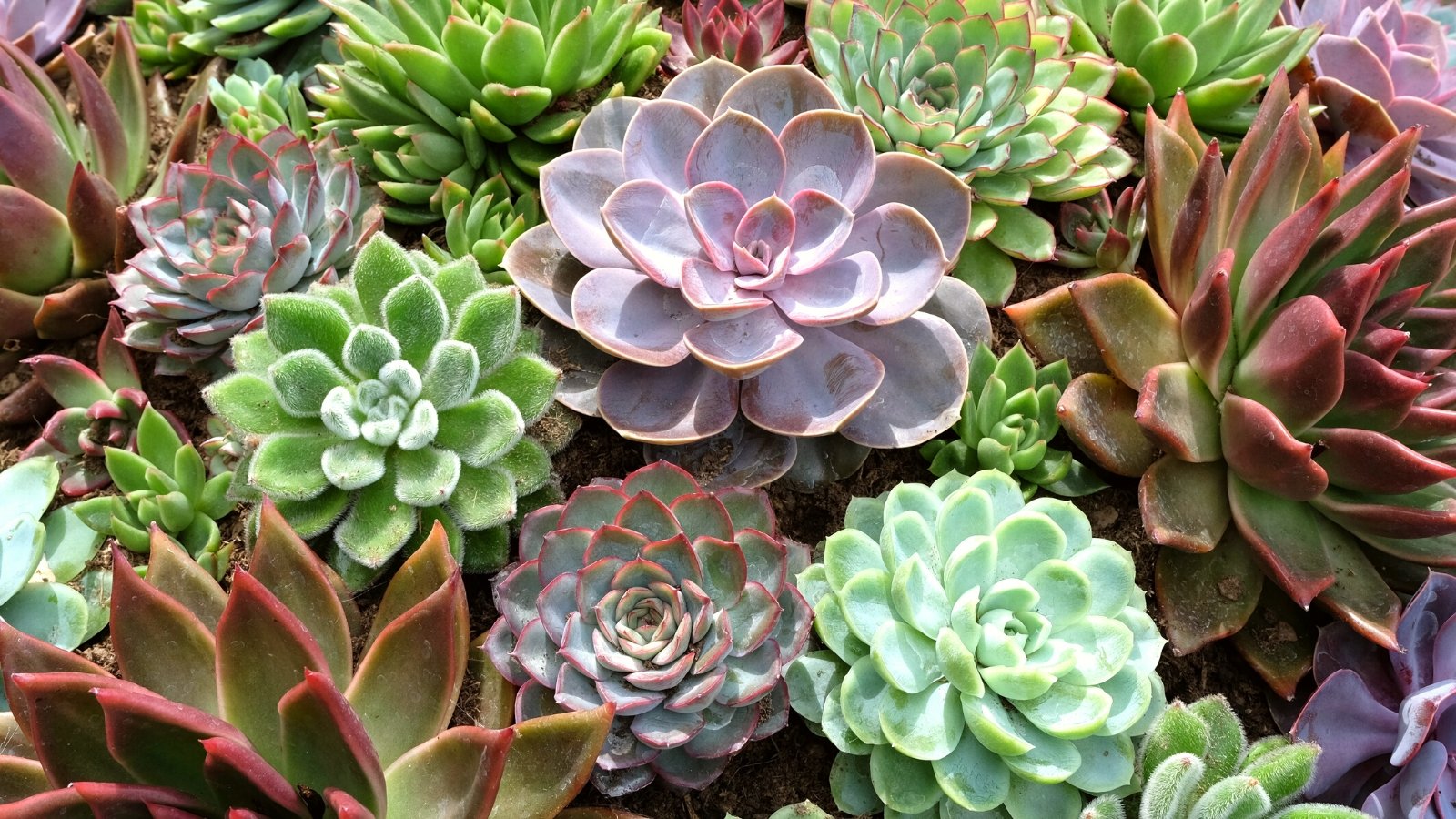Echeverias are nice and easy-to-maintain succulent crops. They’re versatile and don’t require hundreds from their house owners. These nice little crops like to vary colours when fortunately careworn from chilly or direct photograph voltaic publicity. Most produce good flowers all by the summer season season season months, as appropriately. They’re terribly resilient and straightforward to propagate.
Whenever you wish to add some echeverias to your succulent yard or assortment, there’s every type to pick from. They arrive in plenty of colours, together with totally completely totally different leaf shapes and orientations.
All it is advisable to achieve success with these crops is a sunny window and a few well-draining soil. Listed beneath are plenty of of my favourite sorts of echeveria which will work good in your succulent yard.
Perle von Nurnberg
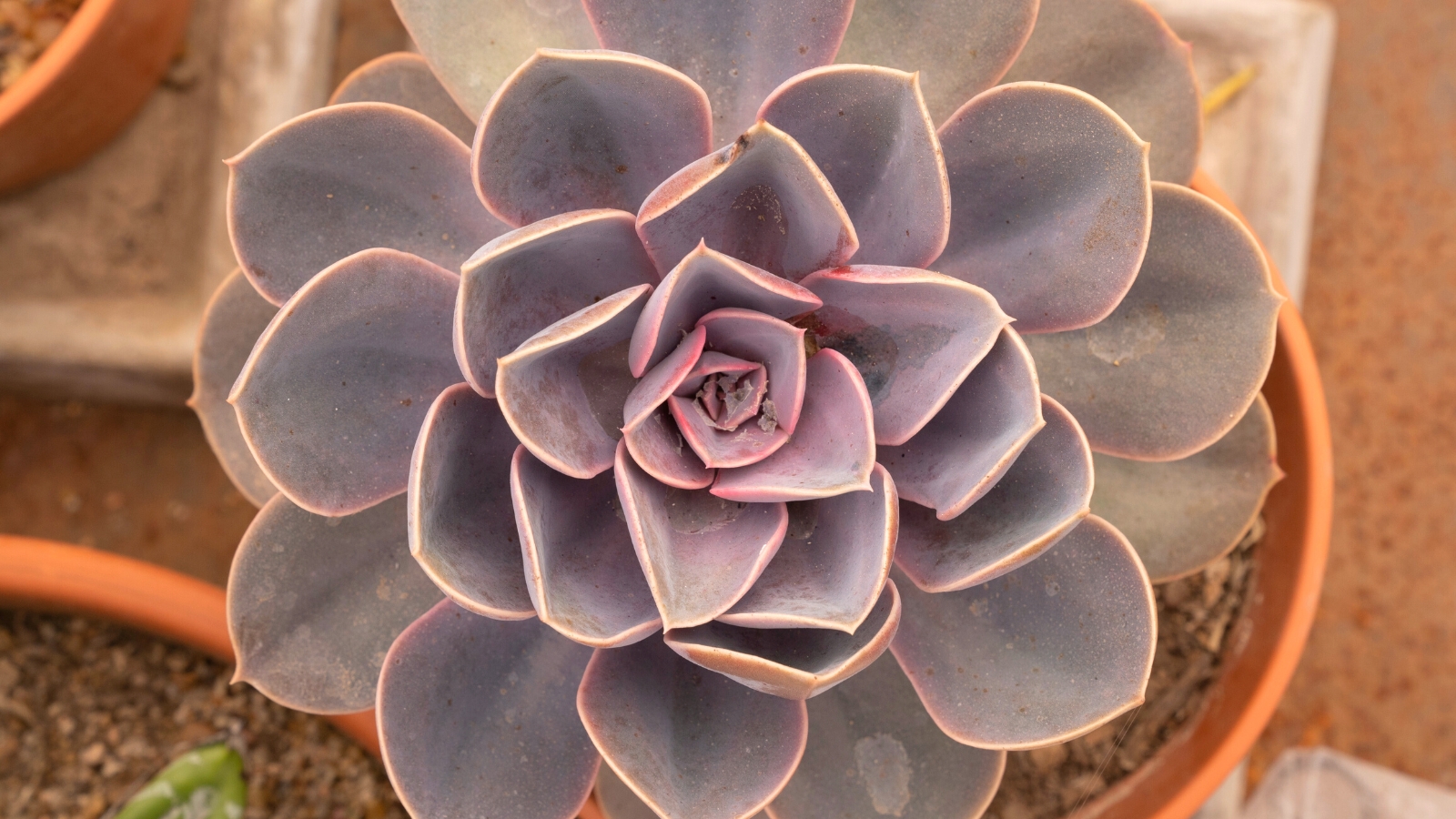

‘Perle von Nurnberg’ might be going considered one of many hottest sorts of echeveria. Florists love this cultivar for its gentle, gray-blue leaves with their rounded edges and pointed ideas. The leaves develop in a finely ordered rosette. A fragile dusting of top of the range white powder makes the plant far more gentle and fairly.
This alternative has a status for being an infinite bloomer. A plant can ship up fairly just a few flower spikes in a 12 months. These slender flower spikes produce coral-colored blooms that look beautiful in floral preparations. It could bloom largest in full photograph voltaic.
Neon Breakers Desert
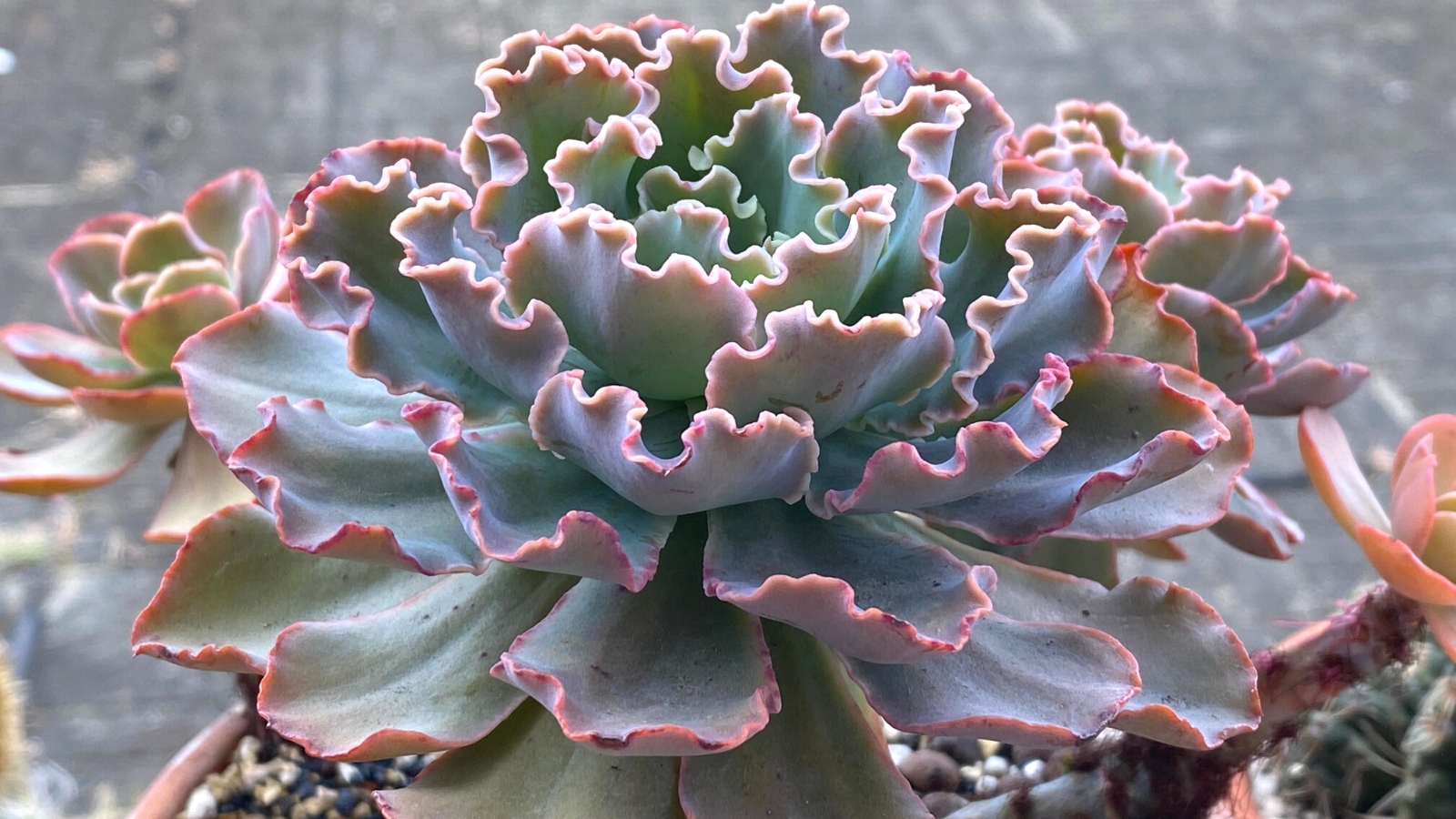

‘Neon Breakers’ has nice leaves with evenly ruffled leaves. The leaves begin pale grey-green, nonetheless with sufficient photograph voltaic, they age to a silvery-violet shade. Many sorts of echeveria have this attribute. Stress from daylight and chilly could set off their leaves to blush.
It is a small cultivar, reaching solely six inches tall at maturity. It’s fast-growing and produces purple flowers in late summer season season season and early fall. ‘Neon Breakers’ will tolerate full photograph voltaic, nonetheless when it seems to be very careworn, strive partial shade.
Blue Fowl
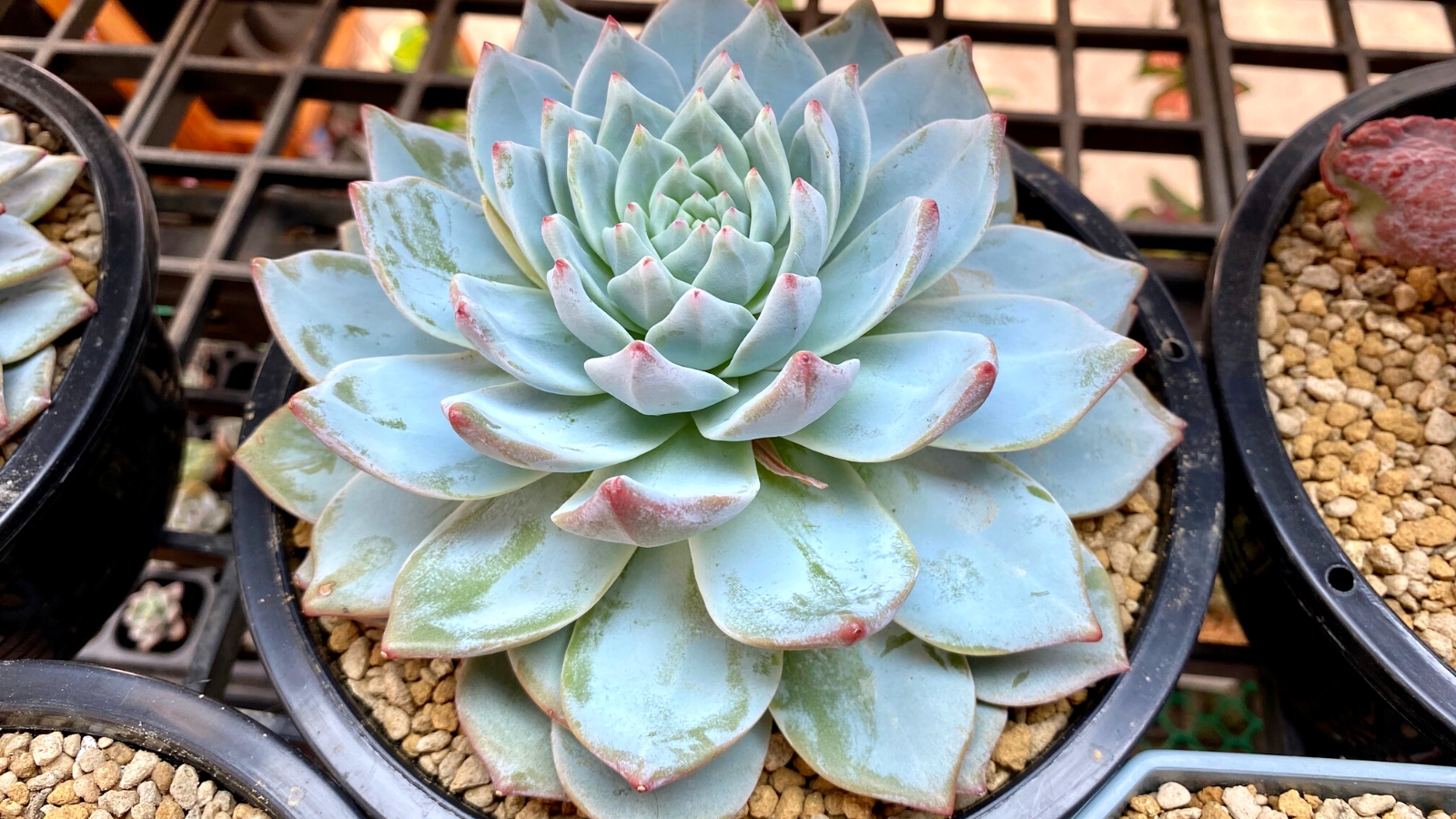

The plump, blue-green leaves on ‘Blue Fowl’ make this a pleasing cultivar. These echeverias have a pillowy look with pointed ends and easy, rounded margins. The leaves flip pink all through the sides in cool native climate, along with curiosity all through the winter.
This alternative has the high-quality, white, powdery look frequent to the genus. It will perhaps tolerate full photograph voltaic to vivid, oblique gentle when grown indoors. Pink flowers bloom in early fall.
Berkeley Delicate
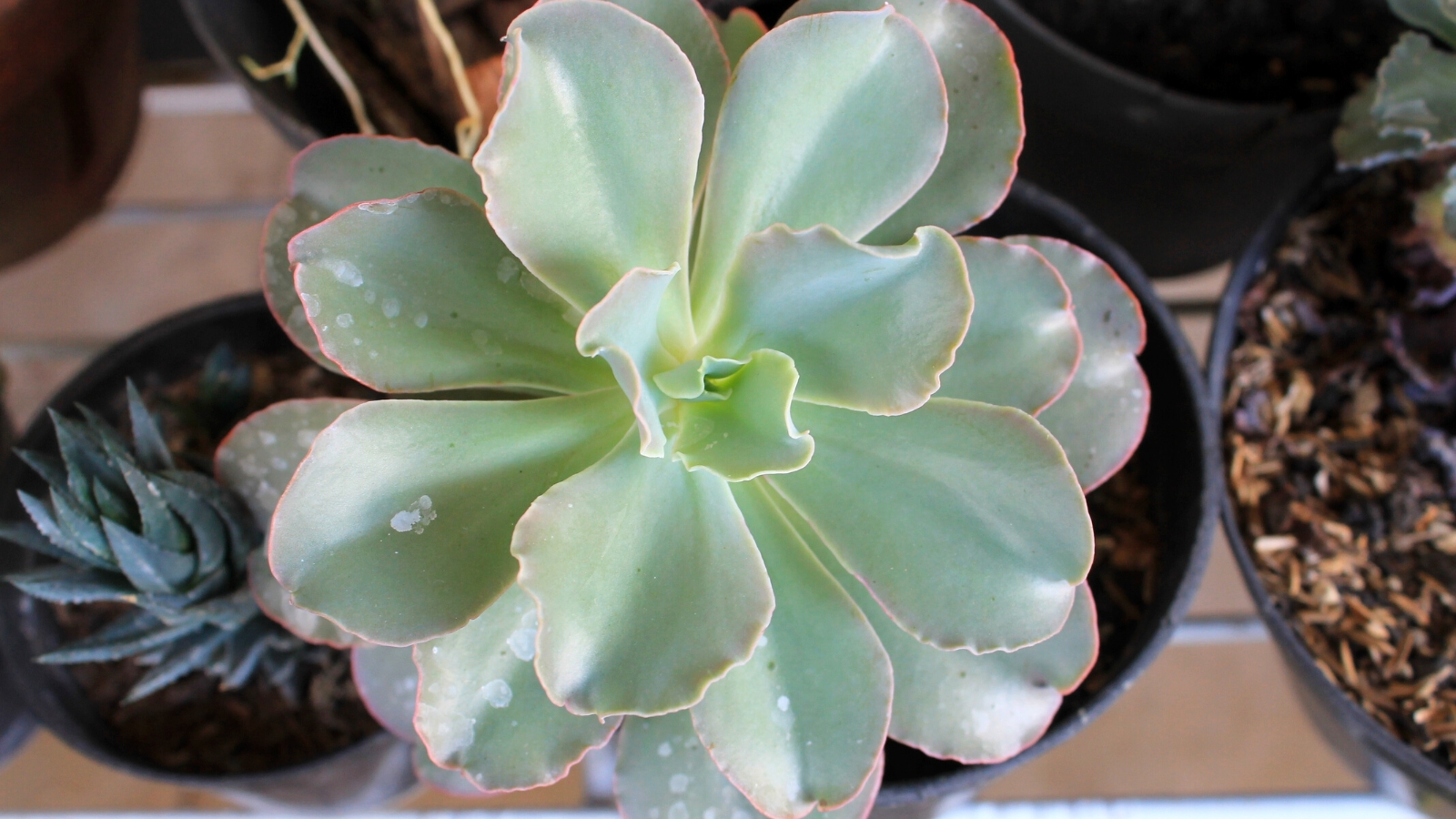

This distinctive and nice cultivar has luminous, variegated leaves. These evenly ruffled leaves are white with celadon inexperienced accents and a slight pink blush all through the sides. The leaves type a unfastened rosette, which grows to about 4 inches tall.
‘Berkeley Delicate’ performs largest in vivid nonetheless oblique daylight. It could tolerate some direct photograph voltaic, nonetheless this would possibly stress the plant, inflicting additional pink coloration. Bigger than its flowers, this alternative’s leaves are its most distinguishing attribute.
Raspberry Ice
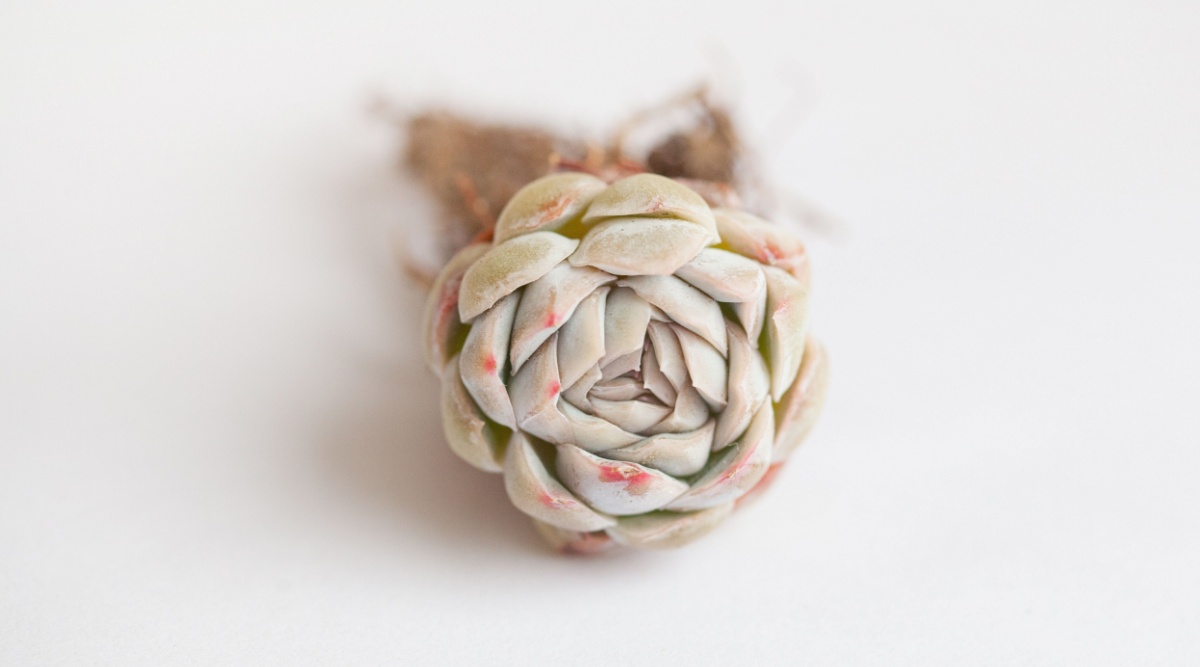

One totally different alternative that’s in trend with florists, ‘Raspberry Ice’ has fascinating leaves. The leaves are easy and pointed on tight rosettes that sometimes maintain closed. These rosettes are spherical comparatively than opening flat, though some do open fully.
‘Raspberry Ice’ prefers vivid, oblique daylight throughout the summertime nonetheless can tolerate some direct photograph voltaic in fall and winter. The leaves are pale inexperienced all through the middle and coral pink on the pores and pores and skin. When this alternative blooms, its flowers are a surprising shade of yellow.
El Encino
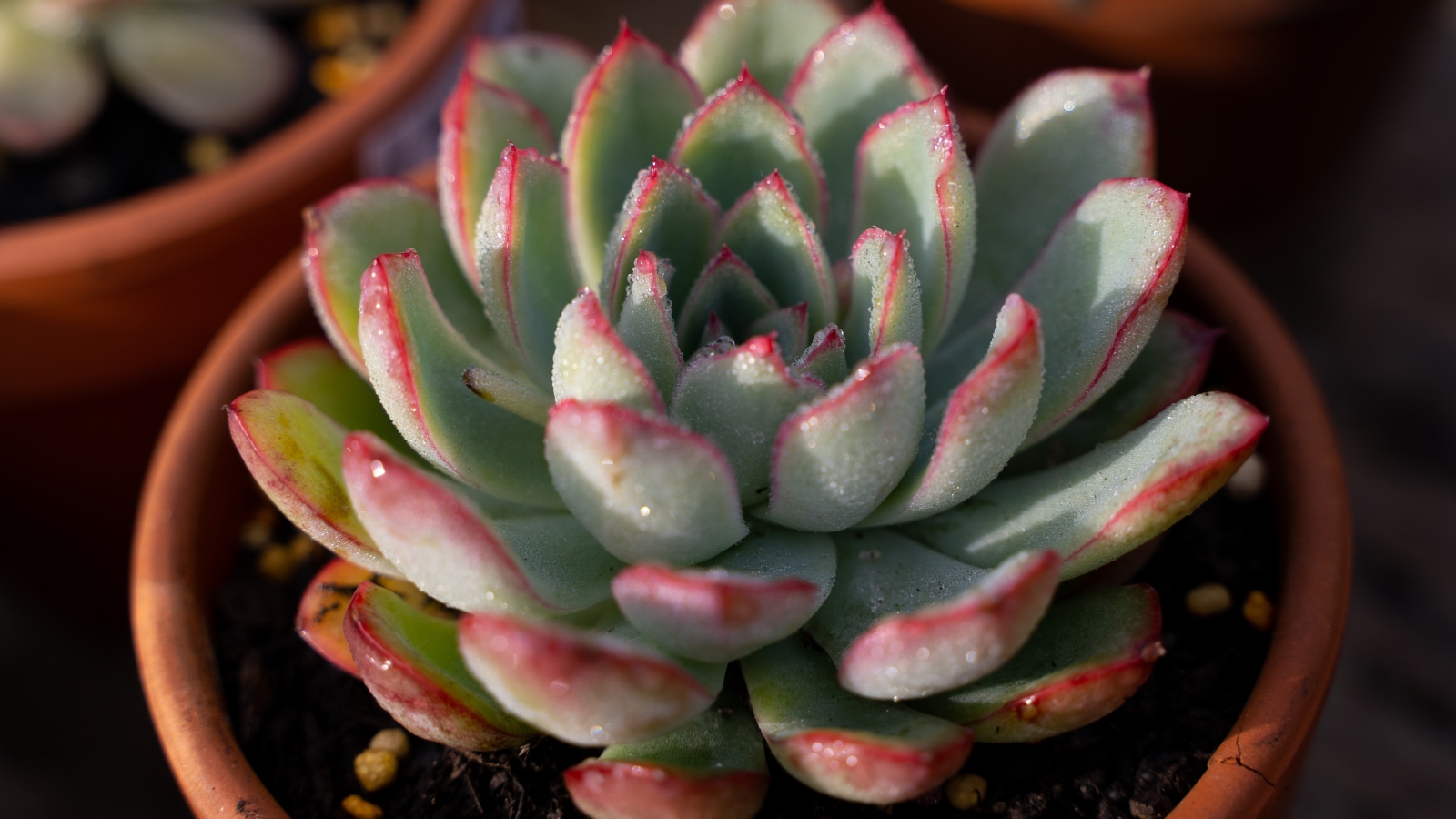

‘El Encino’ is a vibrant little echeveria. Every rosette consists of many tightly organized leaves. These pretty leaves are pale inexperienced with vivid reddish-orange edges and small, pointed ideas. This alternative stays small and neat wanting. The leaves will change shade beneath stress, taking over additional of a reddish tint.
Make sure that to plant your echeverias in unfastened, well-drained soil. Echeverias like a bit additional moisture than most succulents. Don’t protect as soon as extra on watering consistently in case your crops are outdoor. Water additional sparingly all through the winter when the plant is dormant.
Cinderella
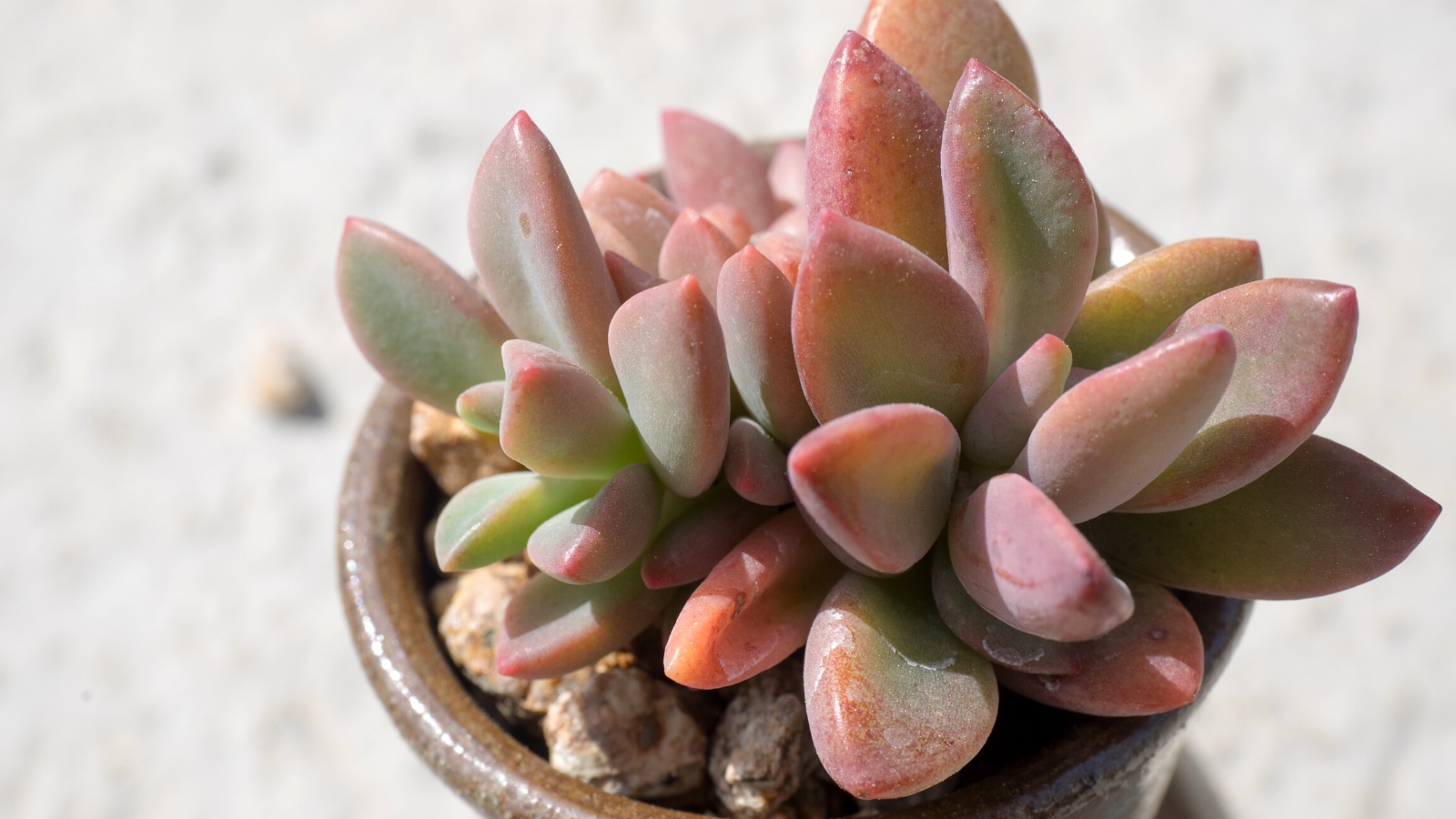

‘Cinderella’ has a novel look to the leaves. These reasonably tight rosettes have longer, yellowish-green leaves that flip into additional inexperienced within the route of the middle. The edges of those leaves are deep crimson and pointed on the ends. Some specimens even have flecks of crimson on the pores and pores and skin of leaves.
It is a uncommon cultivar which can be sturdy to hunt out, making it good for the collector. As with most varieties, giving this plant additional daylight will deepen the crimson tones in its leaves. It is a signal of stress, nonetheless a small quantity of stress is unlikely to do any injury.
Blue Mist
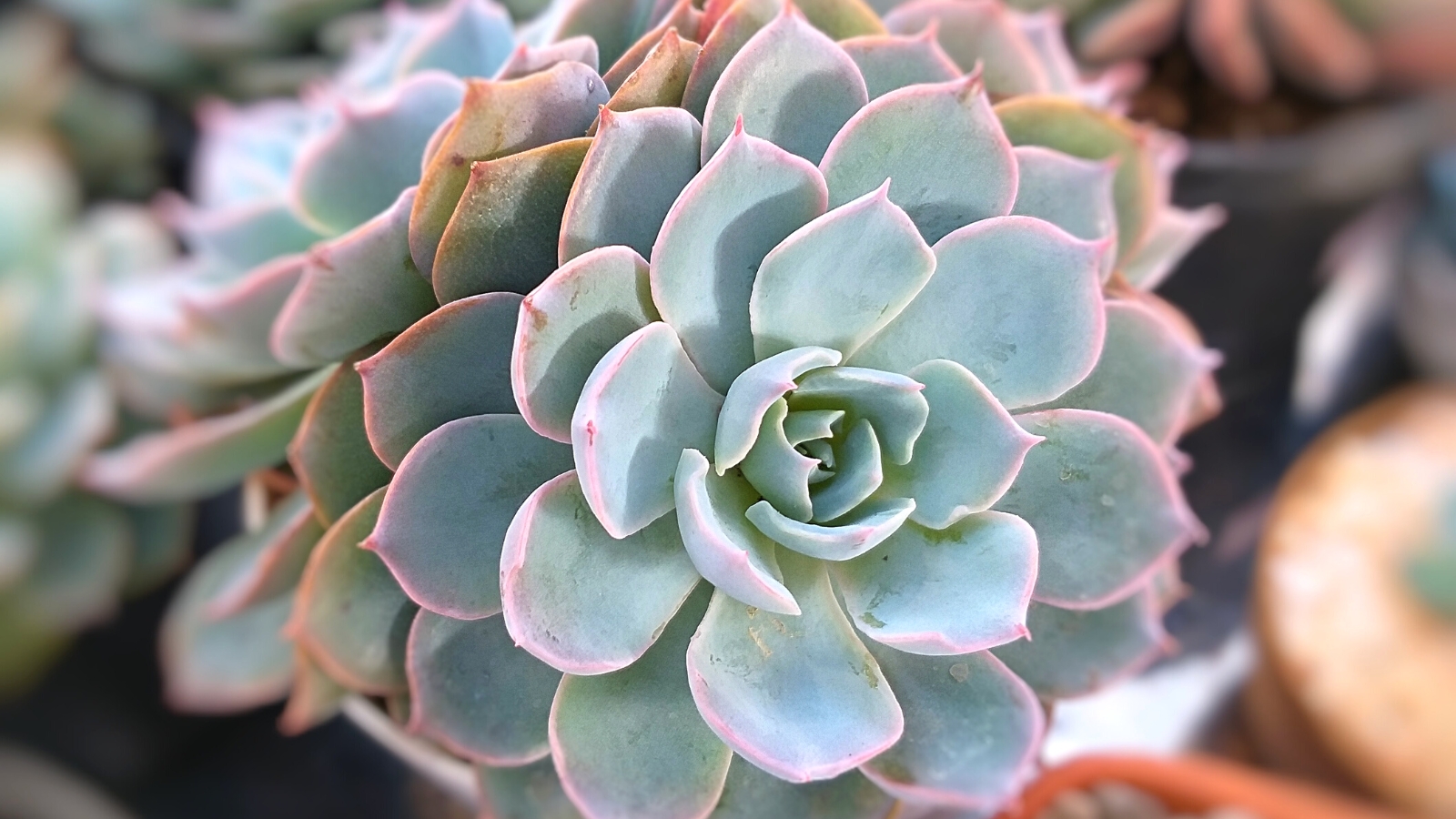

The fragile blue-green shade of “Blue Mist’s’ leaves is breathtaking. The tight rosettes of just about translucent leaves are very evenly tipped with pink. In cool winter native climate, the outer leaves will cope with a faint pink blush, as appropriately. A rosy hue merely tinting the outer edges makes this plant far more beautiful in dormancy.
Throughout the summertime, ‘Blue Mist’ will produce spikes topped with fairly yellow flowers. To take care of up the gentle blue tones of the leaves, this alternative shouldn’t get direct photograph voltaic. Vivid, oblique gentle is largest for this alternative.
Ramillete
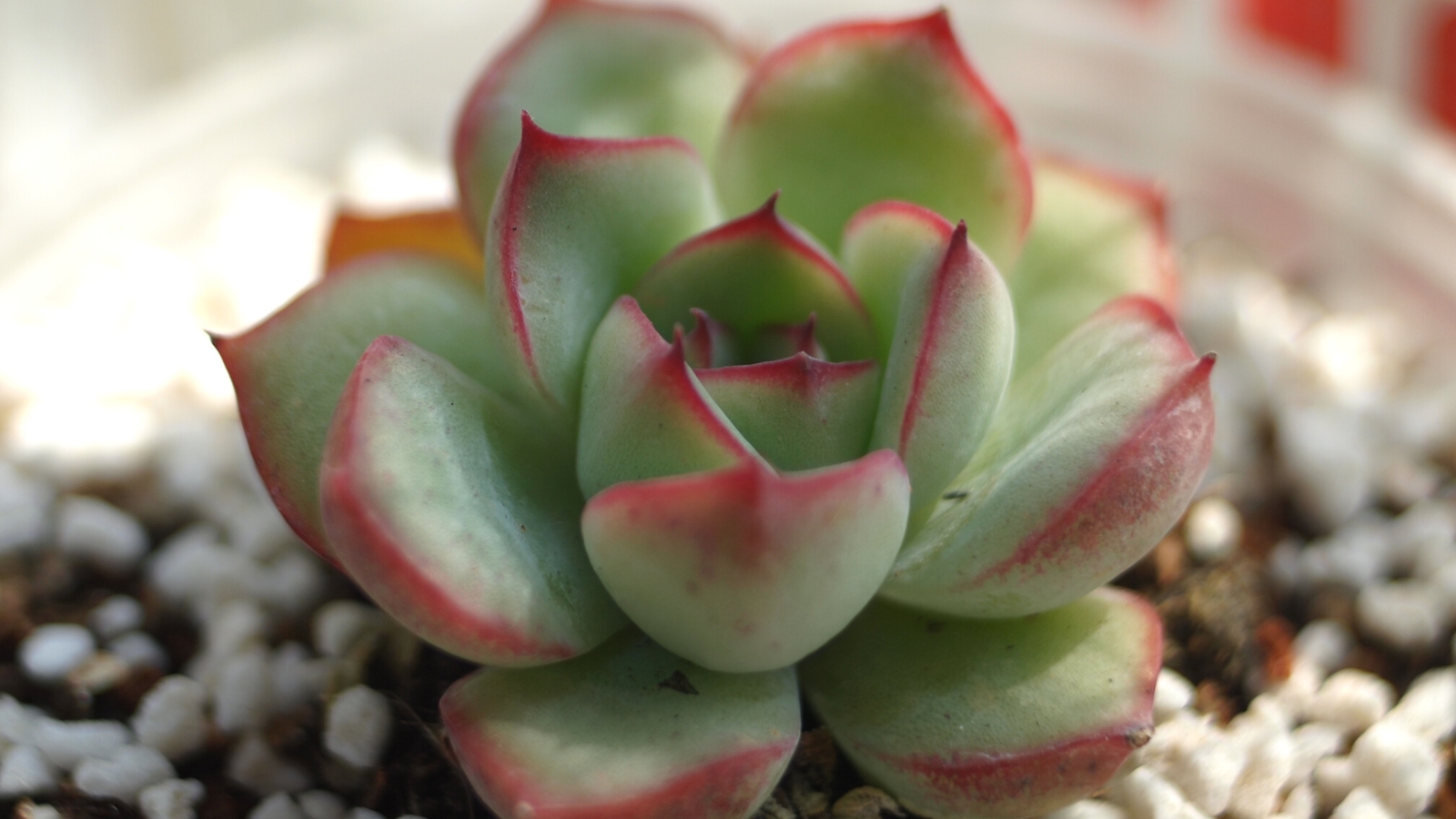

‘Ramillette’ is an easy-care echeveria that’s tolerant of various gentle circumstances. The tight rosette of leaves is apple inexperienced with gentle crimson accents on the foundations and as soon as extra of the leaves. This hybrid alternative is nice at reproducing. It could put out offsets typically with the intention to propagate and share this plant with mates.
This cultivar will acknowledge some cool native climate all through the autumn and blush accordingly. Convey it indoors before a frost, although. These is just not going to be chilly hardy. It is a good bloomer, as appropriately. In summer season season season, anticipate many flower spikes sporting yellow and orange, bell-shaped flowers.
Black Pearl
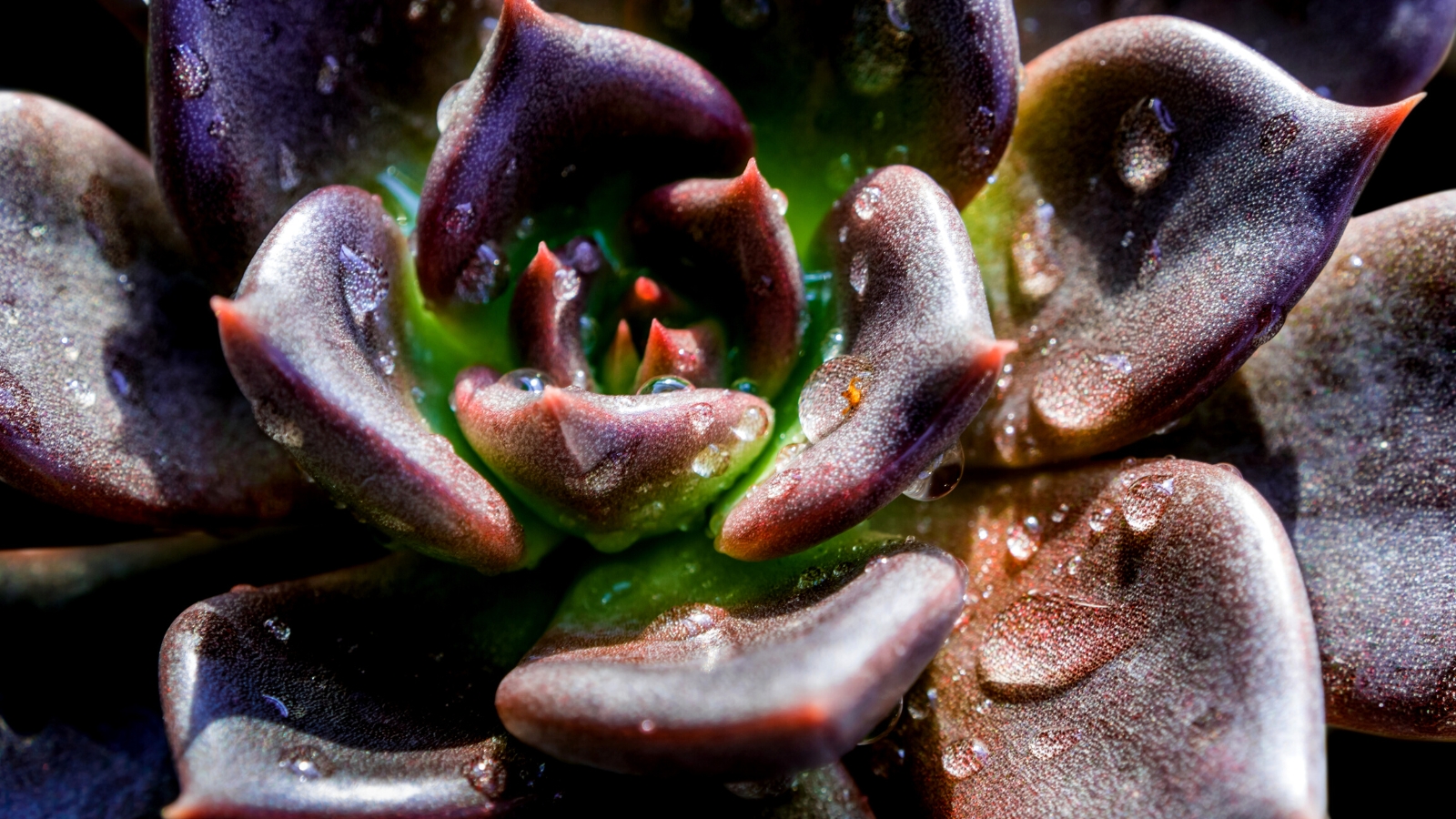

It is a newer hybrid that resembles the favored ‘Black Prince’ nonetheless with smaller, additional rounded leaves. The kind of ‘Black Pearl,’ as evidenced by the title, is additional spherical than completely totally different varieties that open flat. The fleshy, deep purple leaves are quick and curl upwards within the route of the middle.
The leaves will in the long run open out, revealing vivid inexperienced all through the middle nonetheless sustaining their darkish purple ends. The bottom of the leaves has a high quality white fuzz. This protects the plant from harsh photograph voltaic publicity.
Violet Queen
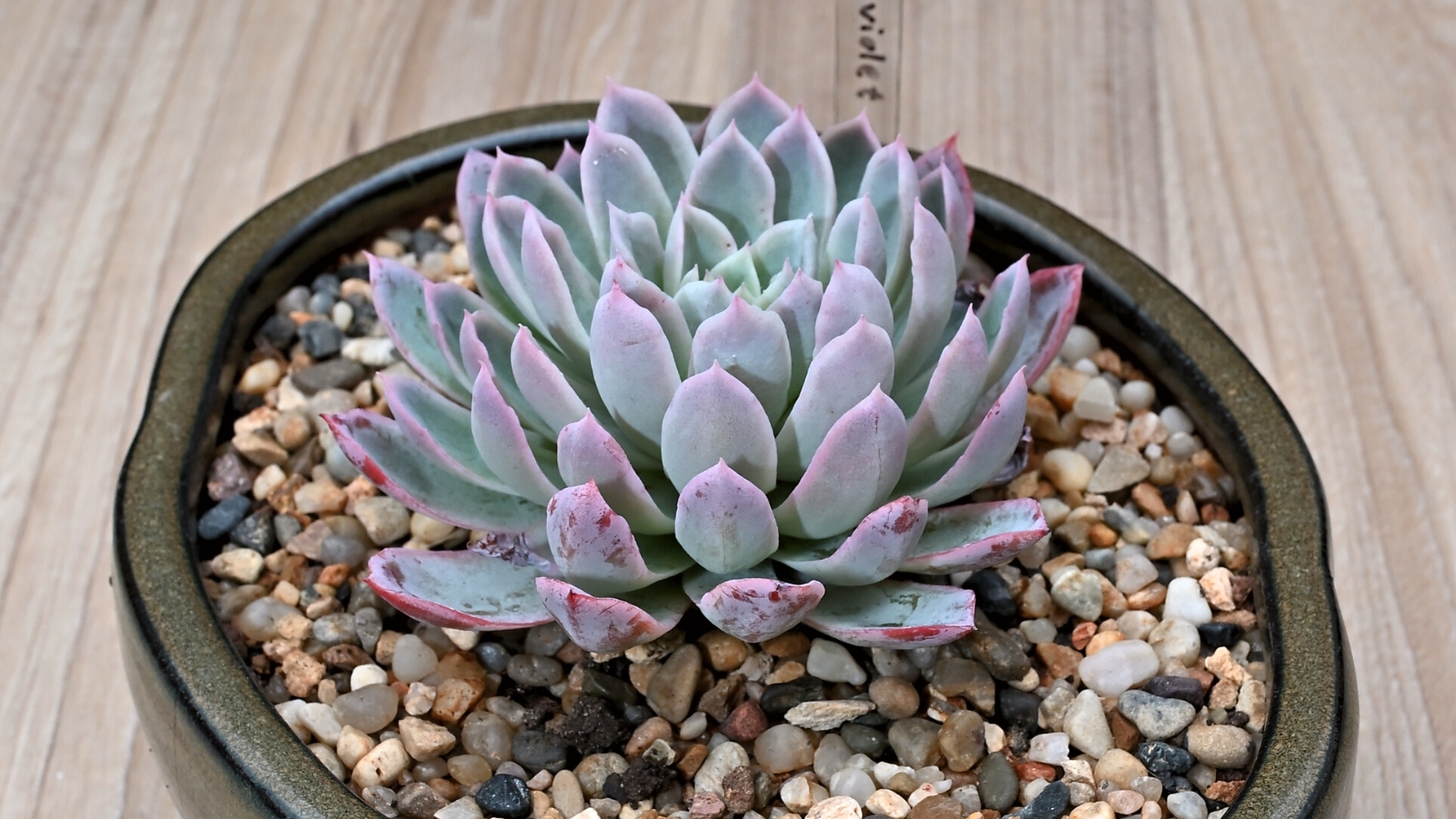

The title ‘Violet Queen’ is misleading, as this plant is a dusky inexperienced shade and certainly not purple. The swish edges of the leaves have a crimson tint that intensifies in chilly native climate or with photograph voltaic stress. The leaves on this alternative are a bit totally completely totally different from completely totally different varieties. They’re narrower on the ends and really pointed. These pointed leaves arch backward, giving the plant an fascinating aptitude.
‘Violet Queen’ creates offsets readily, shortly forming an infinite clump. Since echeveria are monocarpic, they don’t die after flowering. The crops can develop pretty massive and produce pretty plenty of flower spikes on the same time.
Afterglow
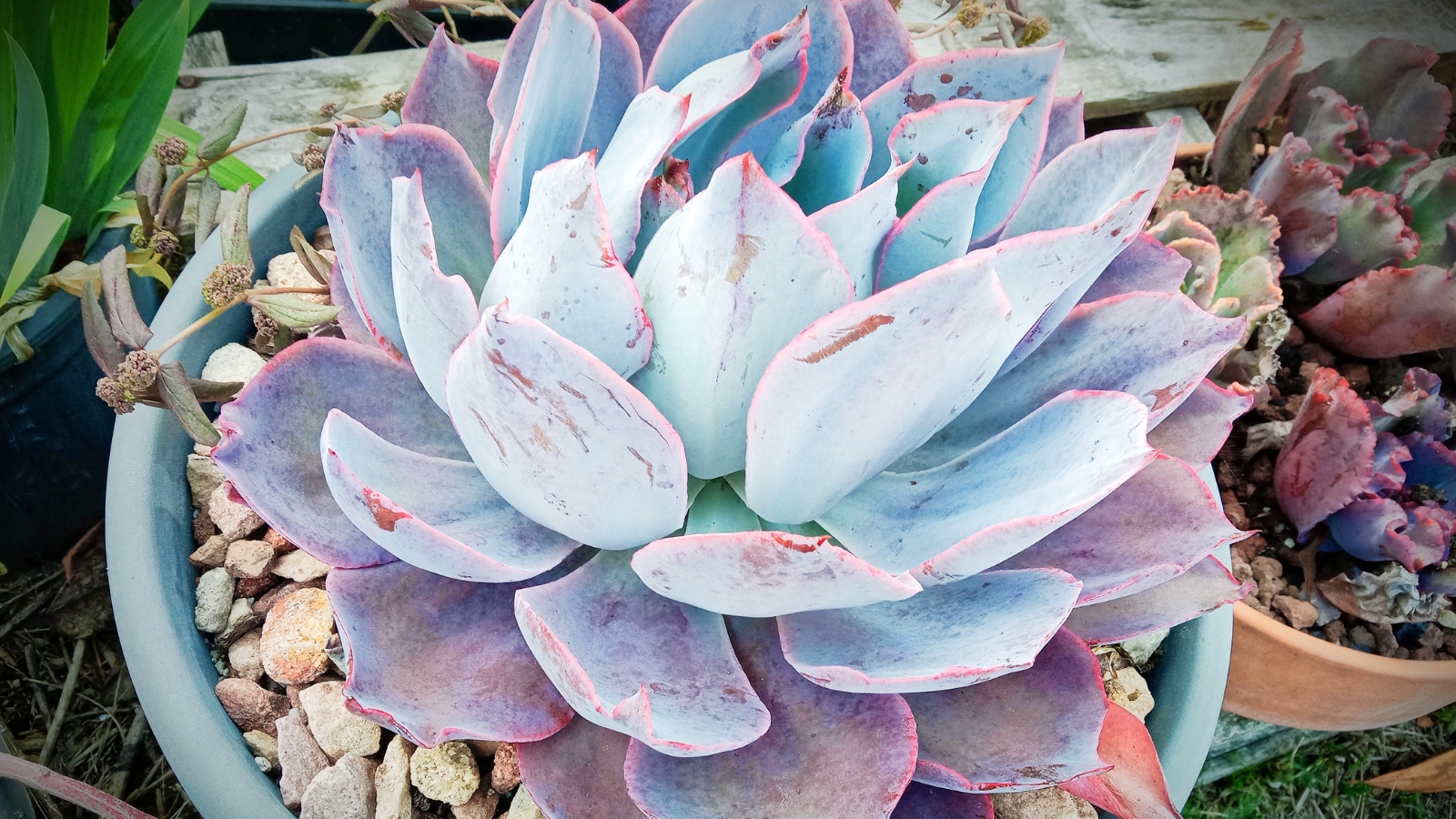

‘Afterglow’ is a a lot greater alternative, with rosettes of evenly ruffled leaves that develop as massive as 12 inches in diameter. The leaves are violet with pink edges and solely a slight blue tint within the route of the middle. It is a vigorous grower.
Give your ‘Afterglow’ full photograph voltaic to get the fitting shade. The leaves will deepen in shade when uncovered to direct photograph voltaic. It is a big and placing cultivar. It produces tall stalks of orange flowers throughout the summertime. Many gardeners take away these, nonetheless I contemplate they’re beautiful, and pollinators love them.
Sofia
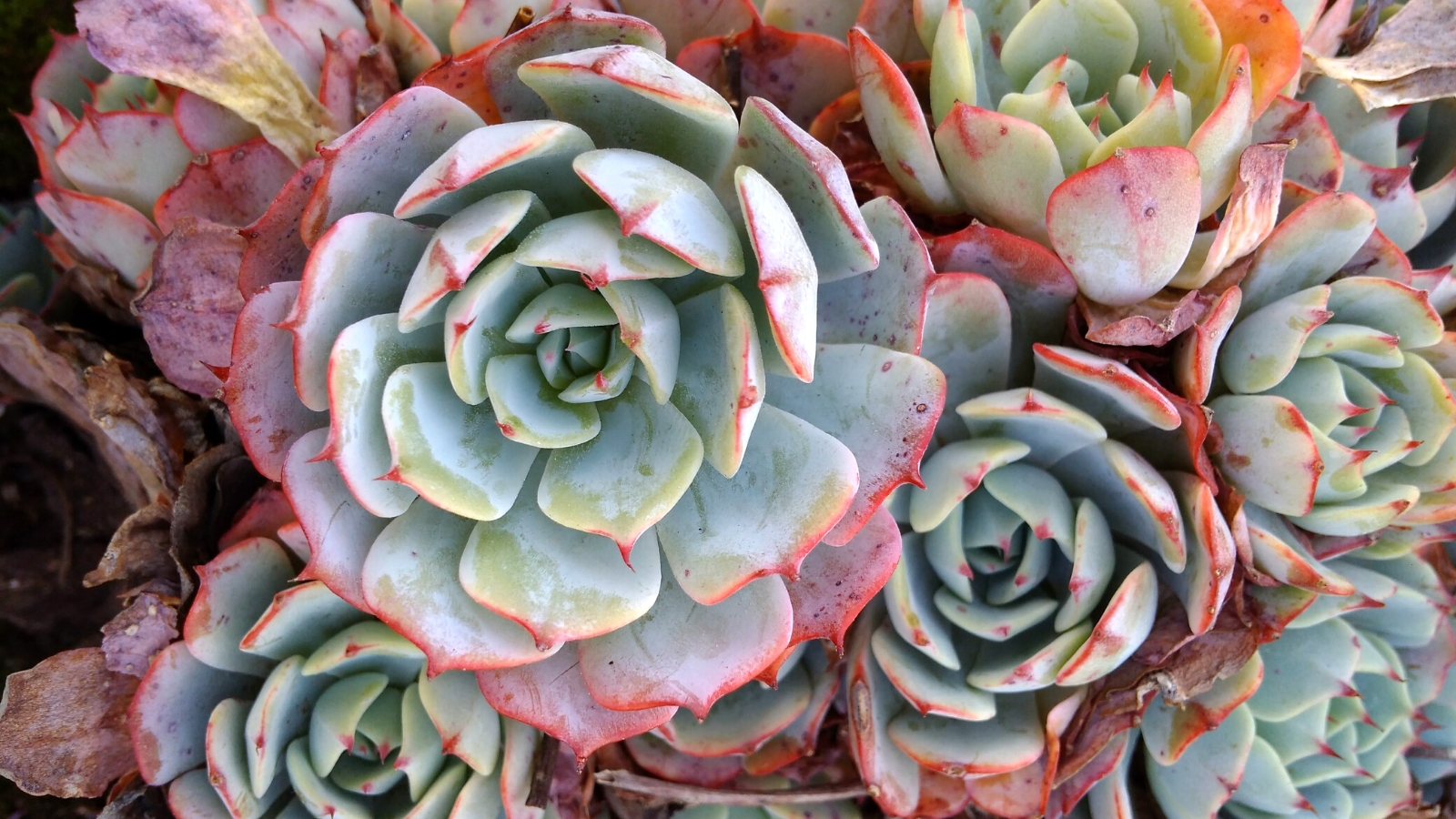

‘Sofia’ is an unassuming and candy little echeveria. It has gentle inexperienced leaves with a dusting of top of the range white hairs that defend it from intense photograph voltaic publicity. The very ideas of the pointed leaves have a faint blush which will deepen with chilly or gentle publicity.
It is a sturdy grower which can attain 4 inches tall and 5 inches massive. Throughout the summertime, ‘Sofia’ produces stalks of crimson, tubular flowers. Let your echeveria’s soil dry between watering to keep away from root rot.
Cubic Frost
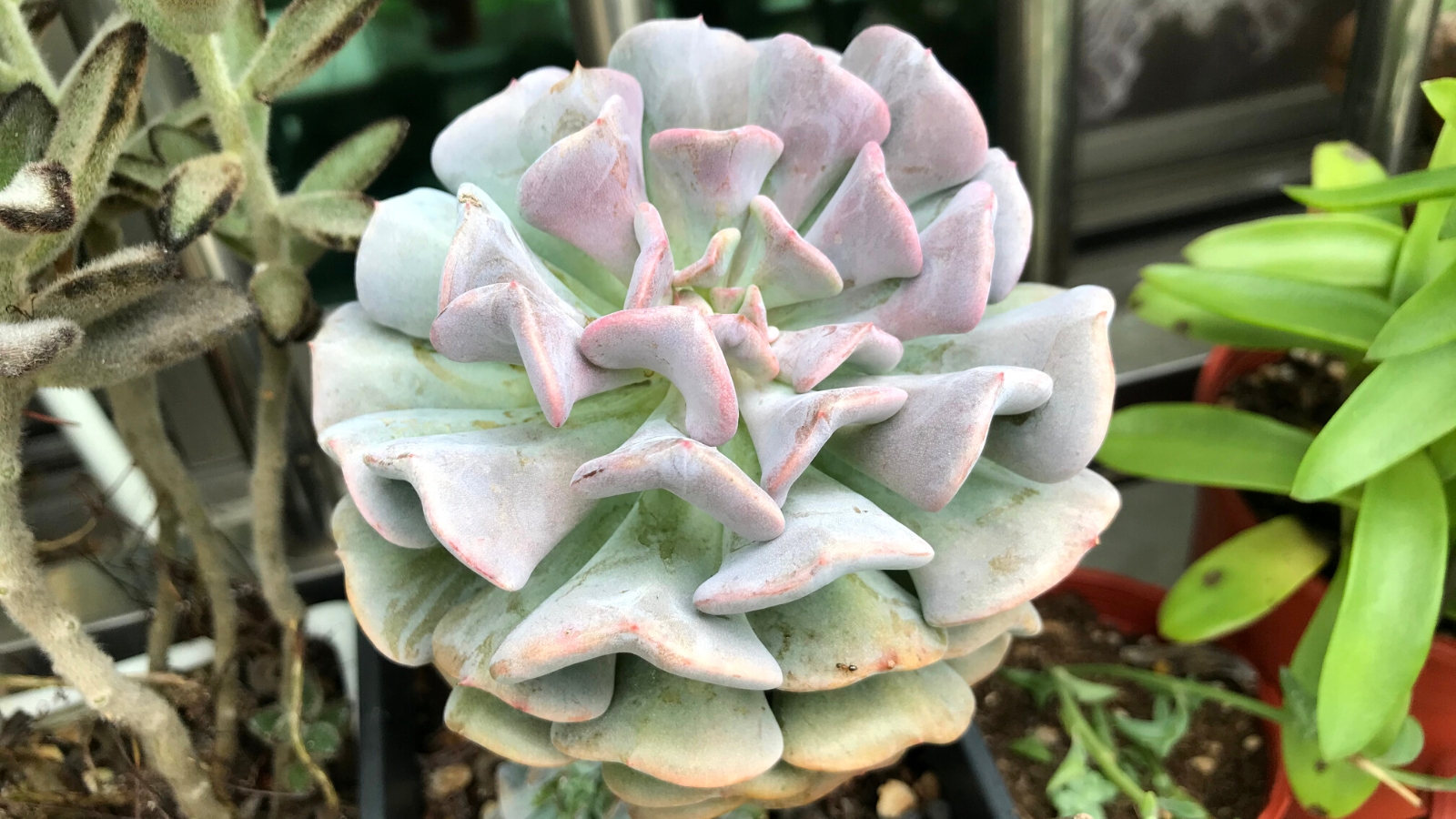

This hardy hybrid has a particular look that fashions it aside from completely totally different echeverias. ‘Cubic Frost has curved leaves with a central rib and squared-off ends. The leaves are very pale gray-green, with a faint dusting of white powder on the bottom.
The frosted look attributable to the farina, or white powdery coating, is a crucial security mechanism. This coating helps to guard the plant from harsh, direct daylight. Whereas full photograph voltaic is appropriate for these crops all by cooler native climate, throughout the summertime, they need to have some shade all through the afternoon.
Galaxy Blue
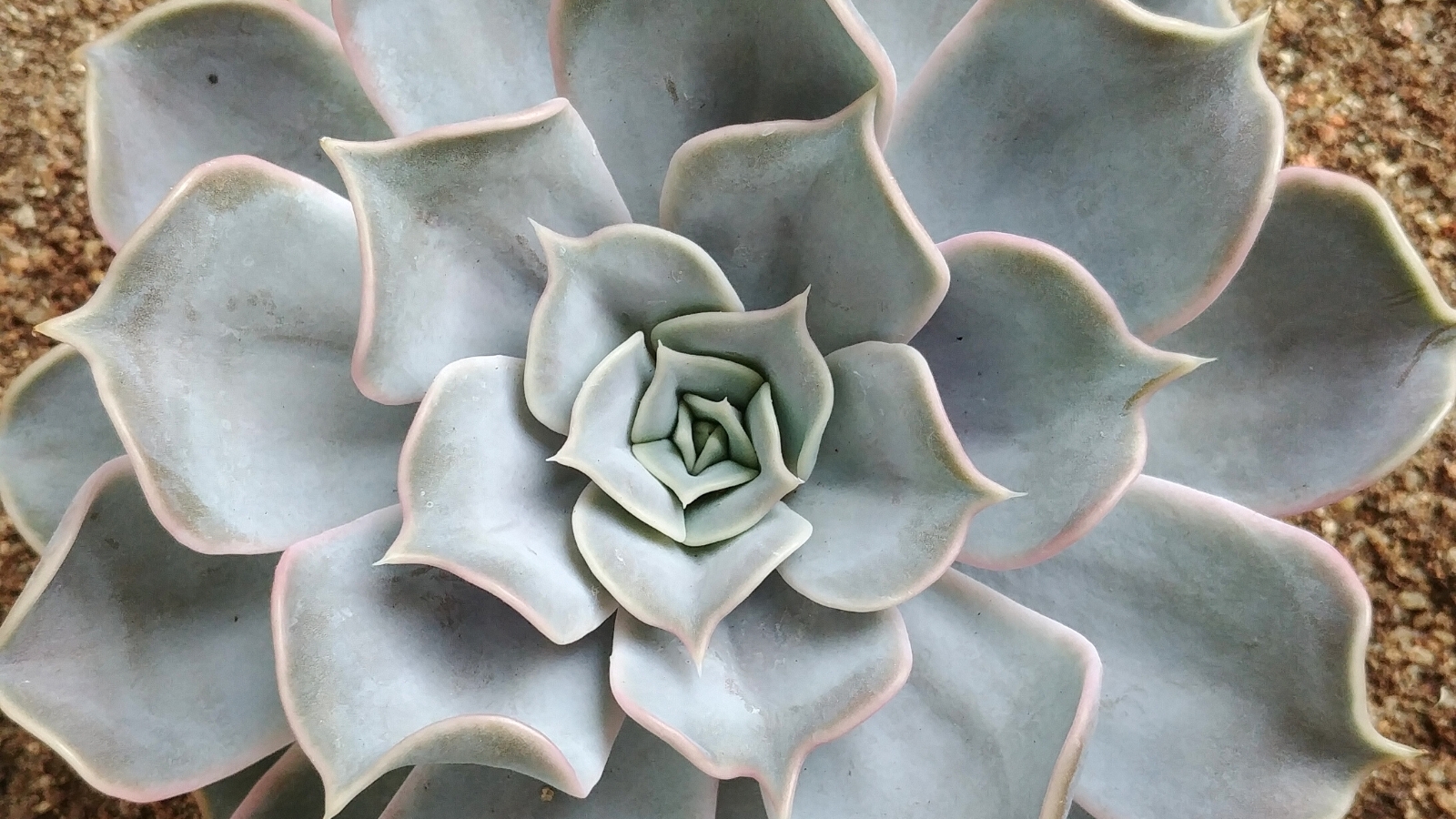

‘Galaxy Blue’ is an eye fixed fastened catching cultivar. This plant has steely blue-green leaves. They’re wavy and curve barely upward on the ends. The kind of this alternative is elegant and refined, with easy edges and the slightest diploma to leaf ends.
This number of echeveria grows near the underside. Nonetheless rosettes is likely to be as quite a bit as eight inches massive. The loosely organized petals lie open, and the plant produces spikes of yellow flowers throughout the summertime.
Lipstick
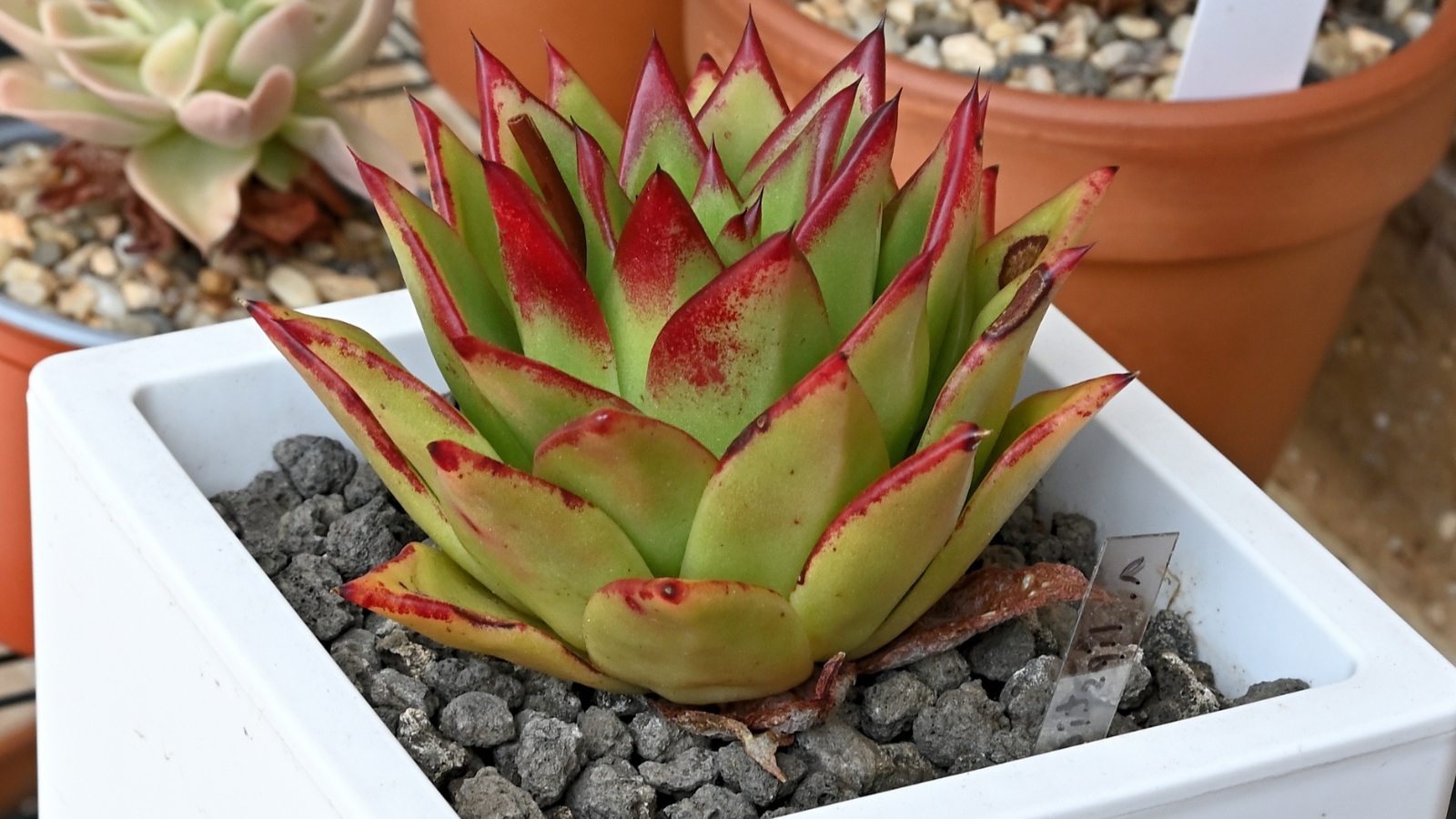

‘Lipstick’ is a particular alternative with longer, additional pointed leaves that lack the rounded edges frequent to the genus. The extended, lime-green leaves have darkish crimson edges that intensify when the plant experiences stress. For echeveria crops, some stress is nice, on account of it intensifies their pretty colours.
Along with the crimson edges of the leaves, the flowers are crimson, as appropriately. This plant readily creates offsets, making it easy to propagate and share with mates. When watering, assure that to soak your echeverias appropriately, after which permit them to dry before watering as quickly as additional.
Black Tetra
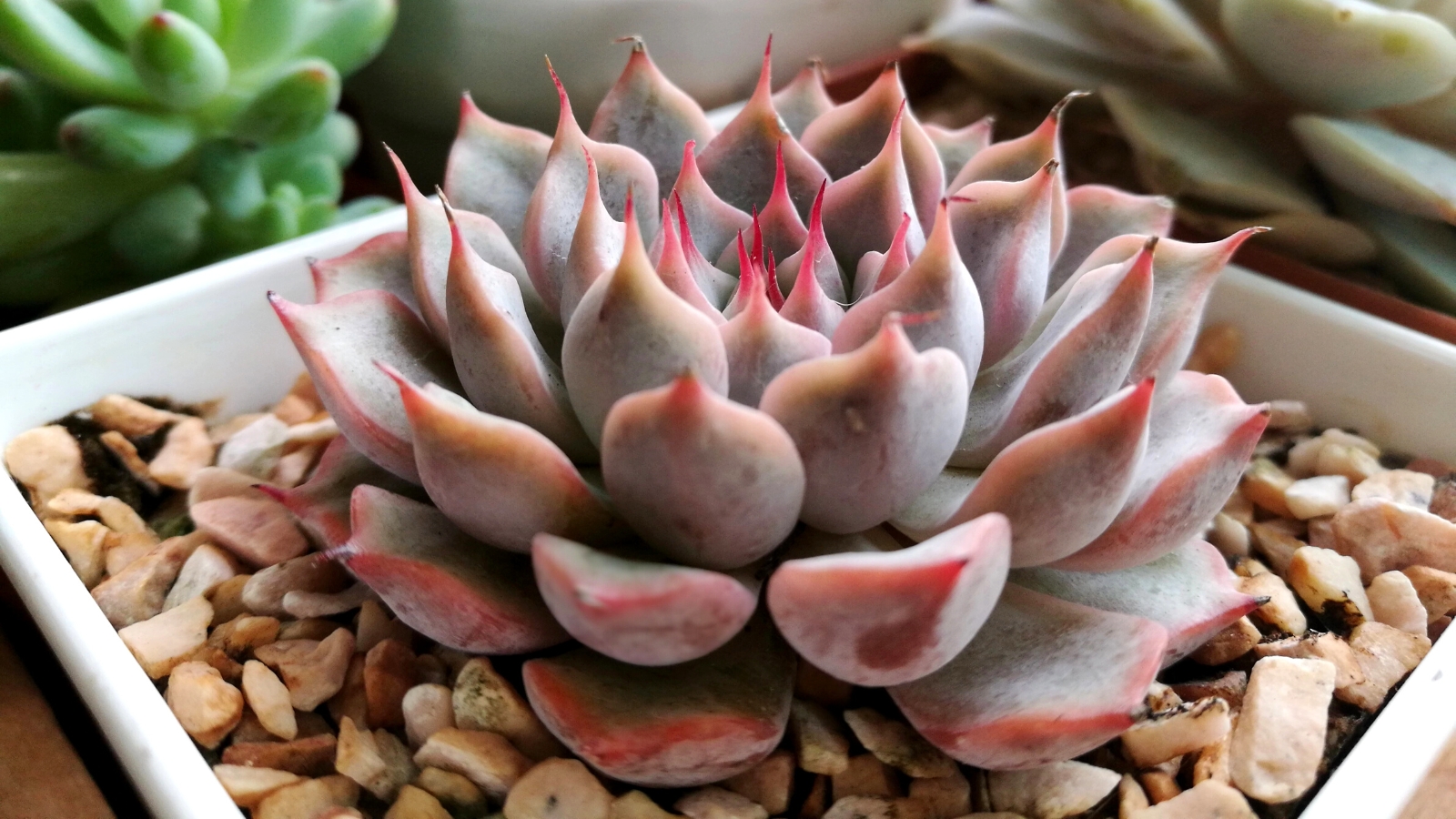

‘Black Tetra’ is a hybrid from Korea. It’s a newer alternative and is likely to be considerably sturdy to hunt out. It’s low-growing and has placing coloration to the leaves. The leaves age to a deep gray-green nonetheless emerge vivid crimson. They’ve a light-weight dusting of top of the range white hairs that make the leaves look gentle and velvety.
Its relative rarity makes this a unbelievable cultivar for collectors. As with completely totally different varieties, ‘Black Tetra’s’ colours will intensify with direct daylight. This alternative turns right into a extraordinarily deep burgundy shade when careworn.
Blue Wren
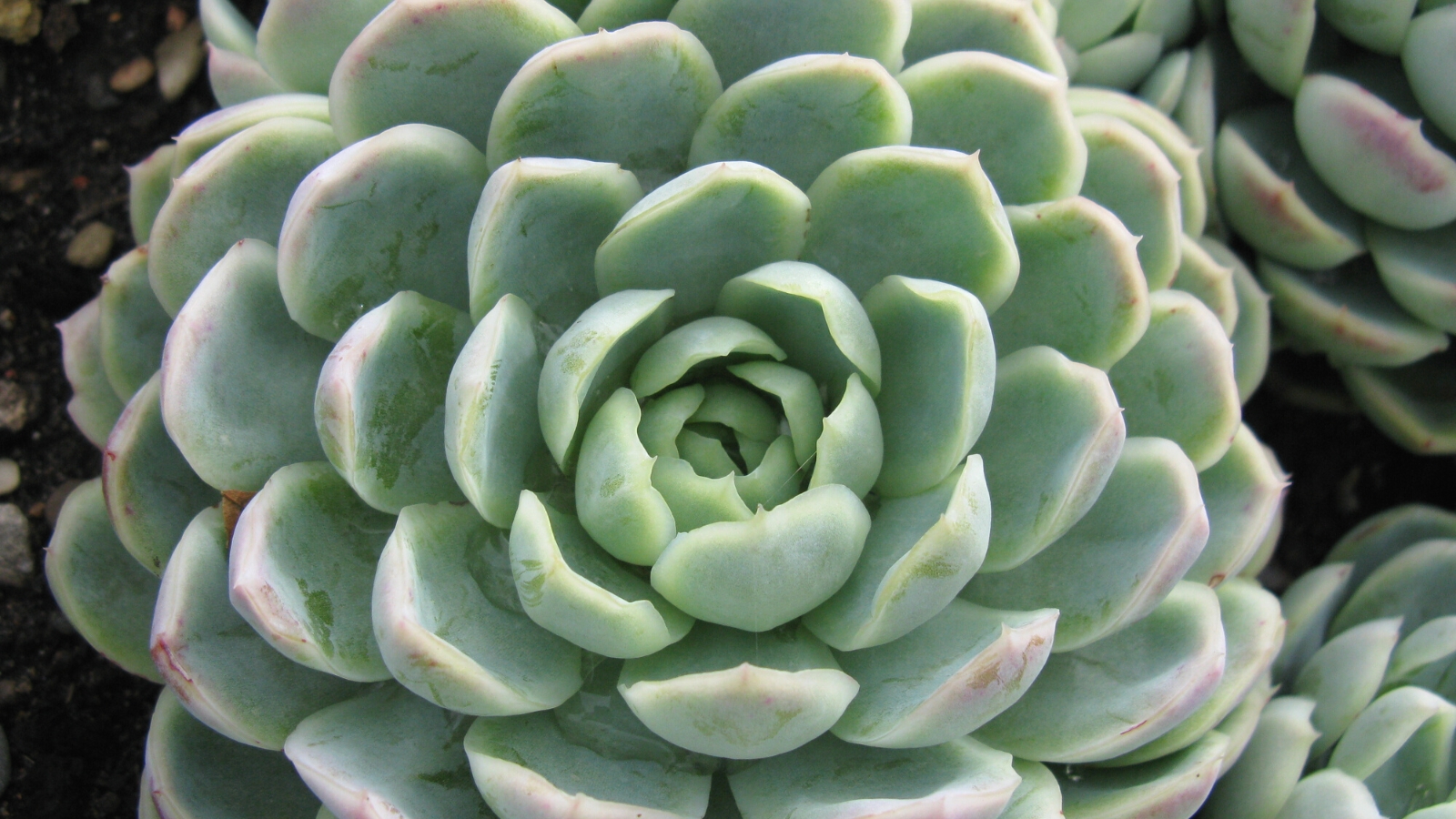

‘Blue Wren’ is an lovable number of echeveria with additional plump, fleshy leaves. The rounded leaves have a barely pointed tip that has a faint blush. The blush will deepen when the plant is uncovered to chilly or direct daylight.
This blue-green cultivar has a high quality waxy coating to the leaves. The low-growing rosette grows wider than it does tall. The leaves open out fully, making a cup sort on account of the plant matures.
Raindrops
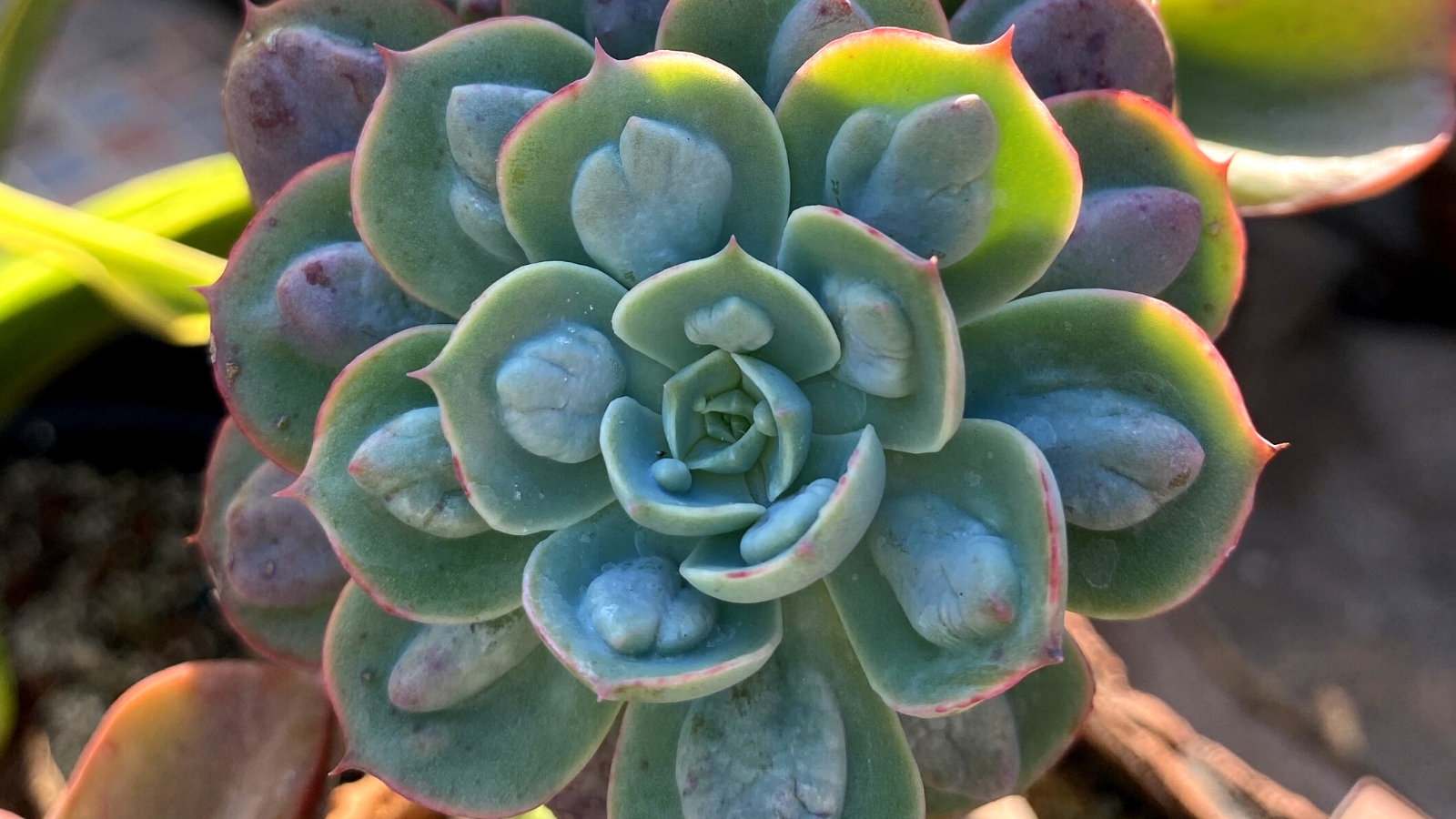

This nice hybrid has small spherical bumps on its leaves, incomes it the title ‘Raindrops.” These bumps develop most pronounced when the plant merely is just not uncovered to direct photograph voltaic. The leaves are flat, and teardrop common, in a pleasant shade of blue-green.
The crimson margins on the leaves are faintly pink, a shade that intensifies with additional gentle or chilly temperatures. For well-developed bumps and a blush as appropriately, give your ‘Raindrops’ vivid, nonetheless oblique daylight for many of the day.
Moon Stone
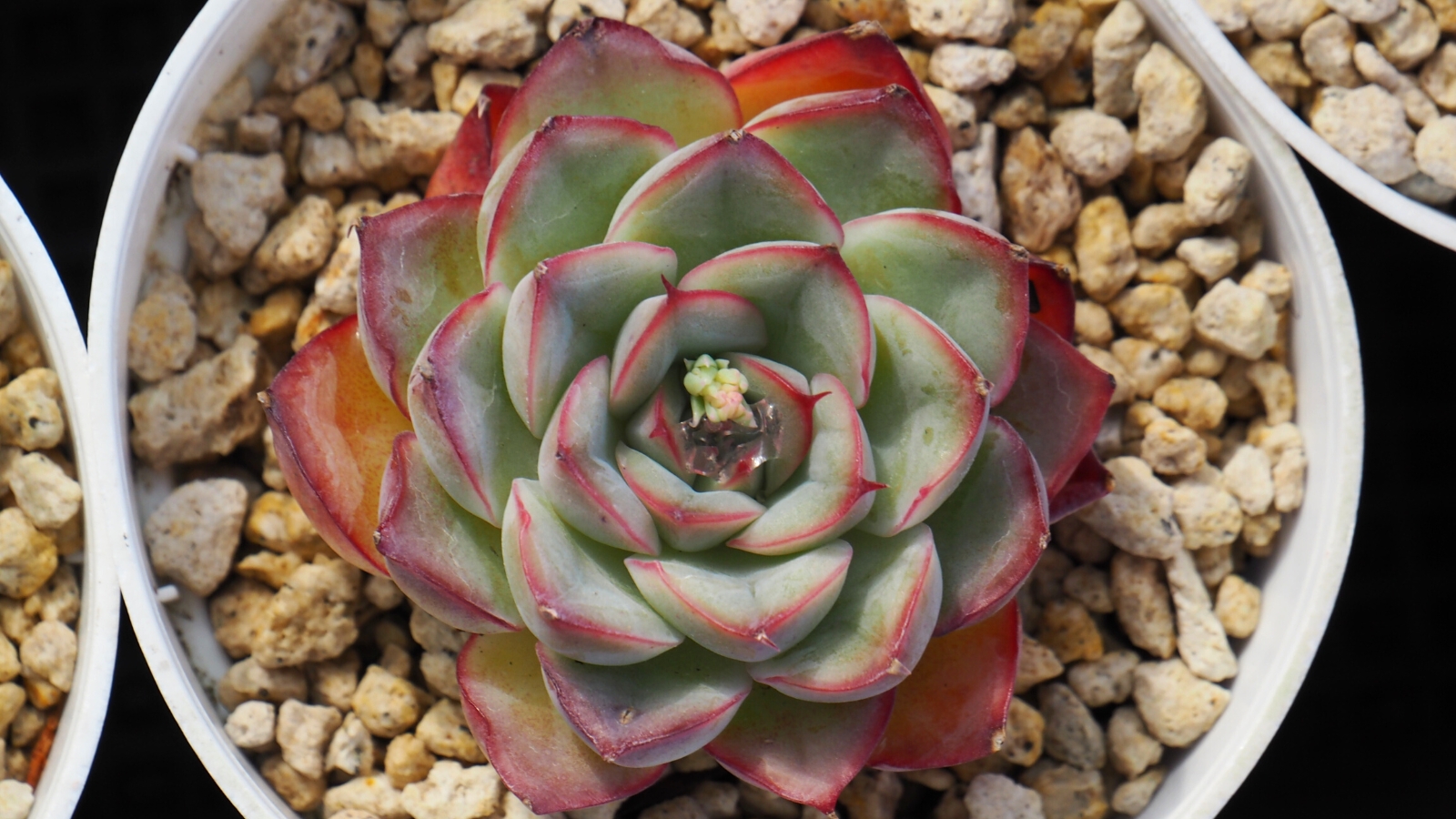

‘Moon Stone’ is a plump and fleshy alternative with apple inexperienced, pointed leaves. The leaves are crimson on the sides, and stress intensifies the colour. In fall, the entire plant takes on a superb vermilion tint.
Give ‘Moon Stone’ about 4 to 6 hours of direct photograph voltaic every single day. In summer season season season, vivid, nonetheless oblique gentle is largest. This cultivar produces crimson flowers throughout the summertime. Regularly overwinter your echeveria crops indoors apart from you yard in zones eleventh of September.
Topsy Turvy
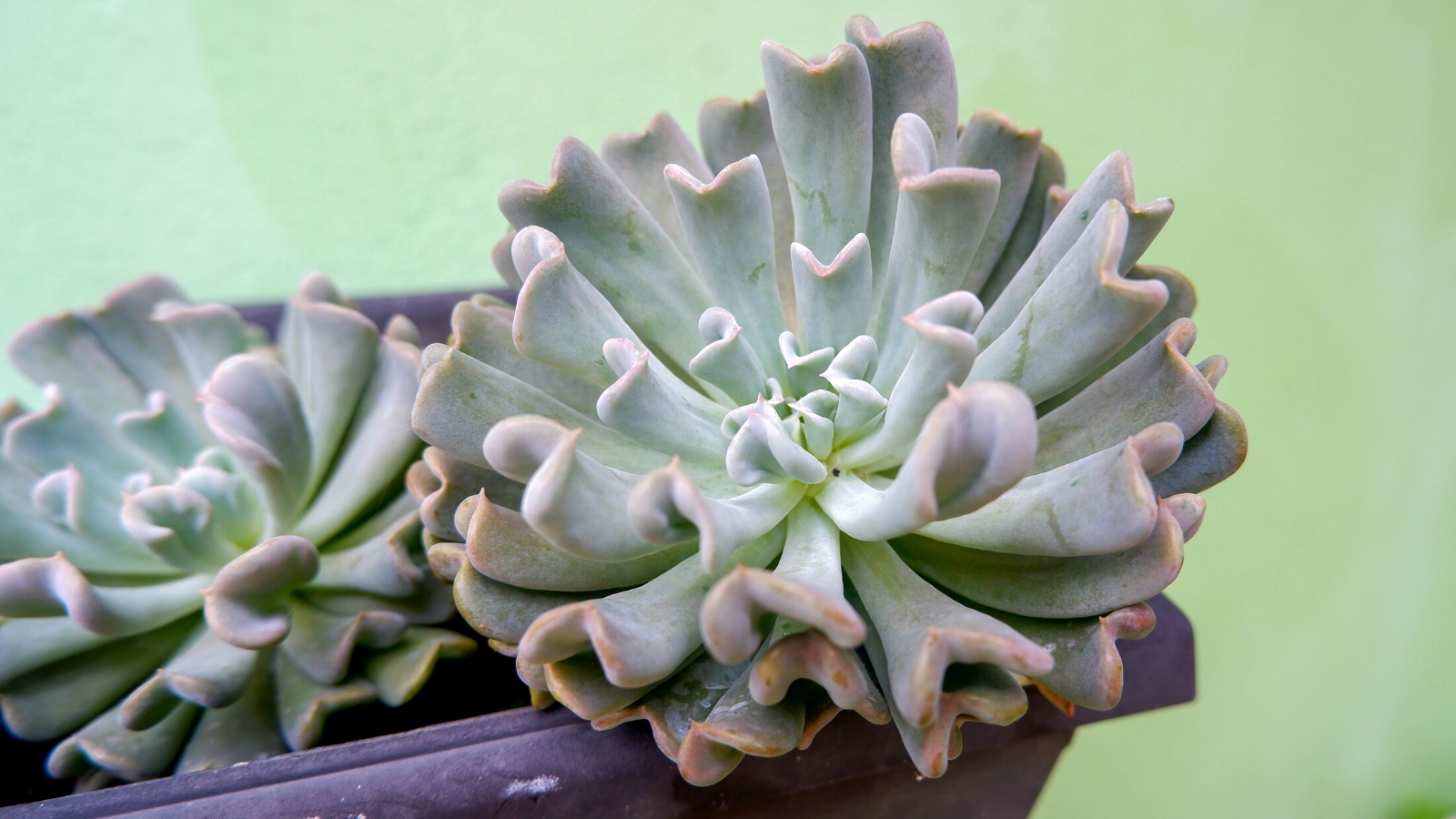

For a lot of who’re within the hunt for a novel cultivar, ‘Topsy Turvy’ is a superb likelihood for the succulent yard. The extended, slender leaves are pale gray-green. Perhaps most likely essentially the most fascinating attribute of the leaves is their irregular order. The leaves have a ridge down the middle and bend upwards or down within the route of the underside.
‘Topsy Turvy’ does a unbelievable job of manufacturing offsets. That could possibly be a straightforward option to propagate. The plant stays near the underside comparatively than forming extended stems. Flower spikes type throughout the summertime and produce vivid crimson flowers.
Black Knight


‘Black Prince’ is a extraordinarily darkish alternative with just about black leaves. This alternative, nonetheless, is Black Knight. It makes a superb specimen for the collector and appears good in a succulent yard. For some additional distinction in a succulent affiliation, you most likely can’t beat this fascinating echeveria.
The leaves on ‘Black Knight’ are extended and deeply pointed on the ends. The colour is a deep purple-green, and when uncovered to stress, the colour deepens nonetheless. The flowers are bell-shaped and inexperienced with a crimson corolla.
Marcus
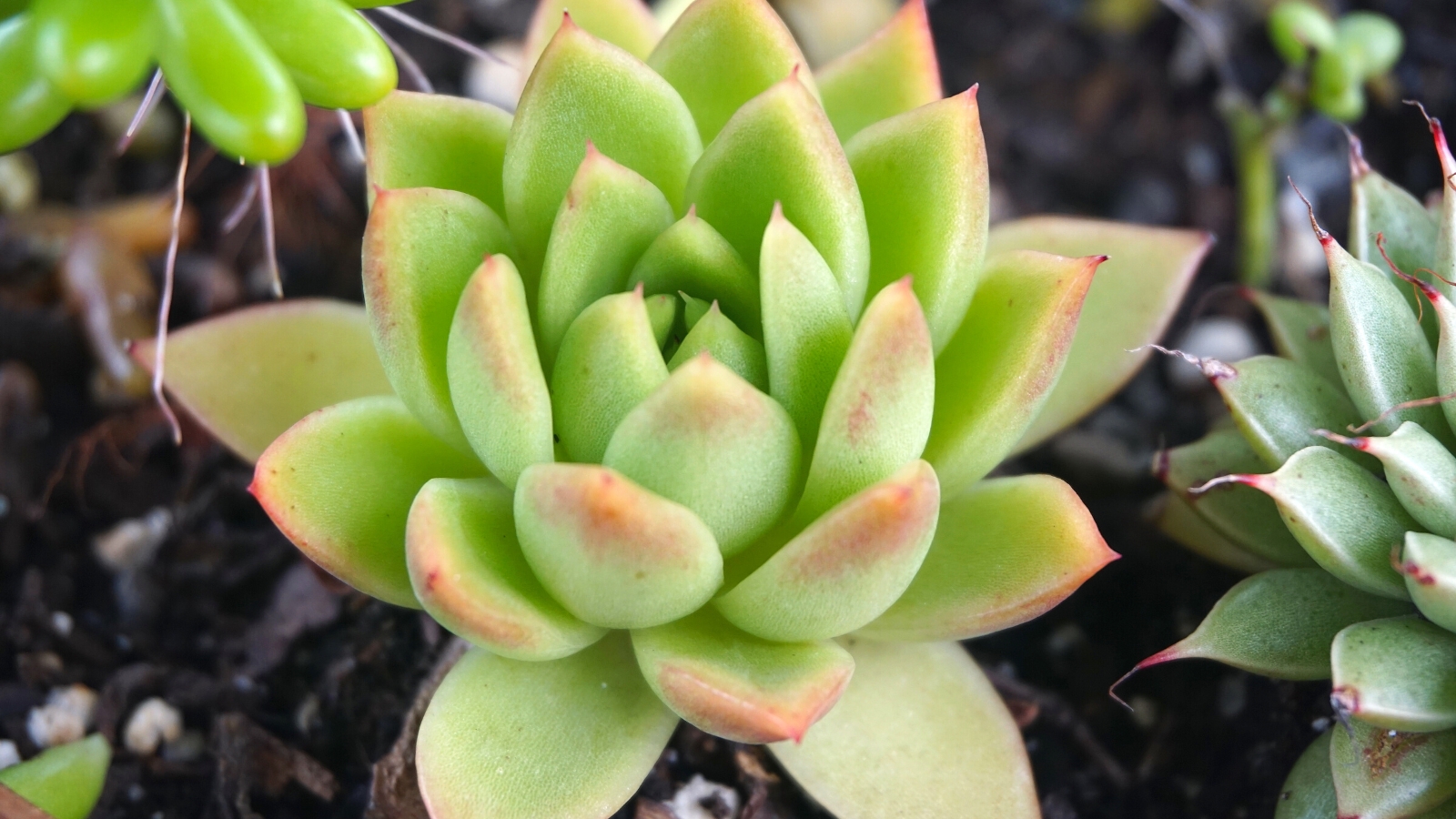

‘Marcus’ is a typical echeveria with easy leaves which have pointed ends. The neatly organized rosettes have solely a touch of blush to the very edges and ideas. This intensifies in chilly or direct daylight. This alternative produces offsets readily, making propagation straightforward.
By the use of recognition, ‘Marcus’ is straightforward to hunt out and acknowledged for its partaking type and hues. Its leaves are vivid inexperienced and waxy, with out the white fuzz that’s frequent to the genus.
Coronary coronary coronary heart’s Delight
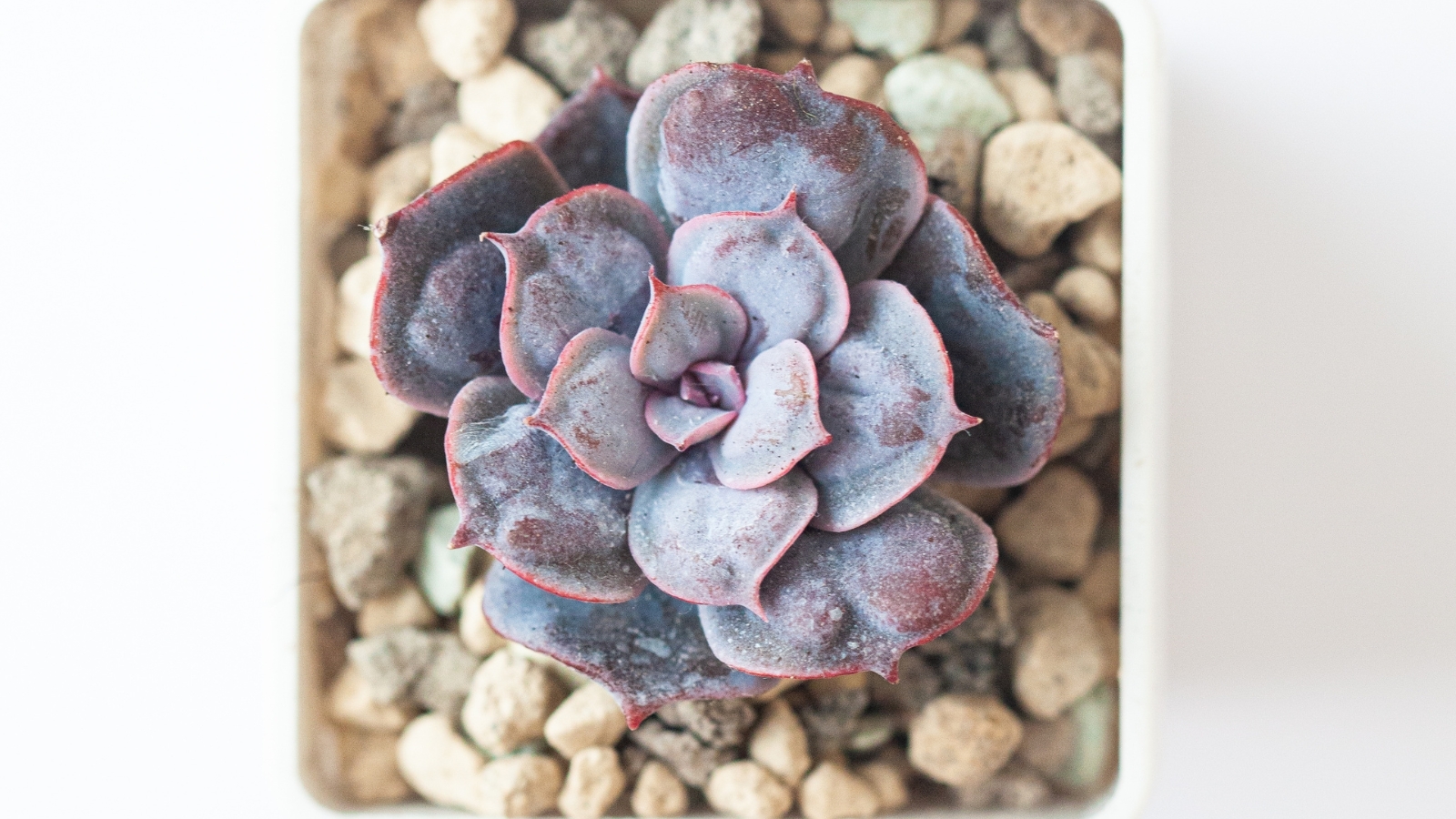

‘Coronary coronary coronary heart’s Delight’ is a big selection with additional bumpy leaves. Much like ‘Raindrops,’ this echeveria has what seem like bumps or blisters on the bottom of its leaves. The leaves are blue-green with a powdery end. The place ‘Raindrops’ has small, pretty uniform bumps, ‘Coronary coronary coronary heart’s Delight’ has additional pronounced bumps.
This cultivar is a gigantic one, it doesn’t develop tall, nonetheless the rosettes can develop as quite a bit as eight inches massive. ‘Coronary coronary coronary heart’s Delight’ is a pleasing dialog piece so as in order so as to add to your succulent yard. Its distinctive look is certainly eye-catching. In direct photograph voltaic or chilly native climate, the leaves blush pink. The flowers are pink, as appropriately.
Silver Queen


‘Silver Queen’ is a classy cultivar with a novel leaf shade. Whereas most sorts of echeveria cope with a crimson or purple hue from stress, this one begins out lavender. The silvery-purple leaves are extended, curved, and pointed. This plant’s rosettes maintain cup-shaped comparatively than opening out flat.
The leaves of this alternative are additional slender than most, and the rosettes can attain as quite a bit as eight inches all by. When careworn, ‘Silver Queen’ takes on a pink or coppery tone. In summer season season season, it produces flower stems with clusters of pink blooms.
Purple Pearl
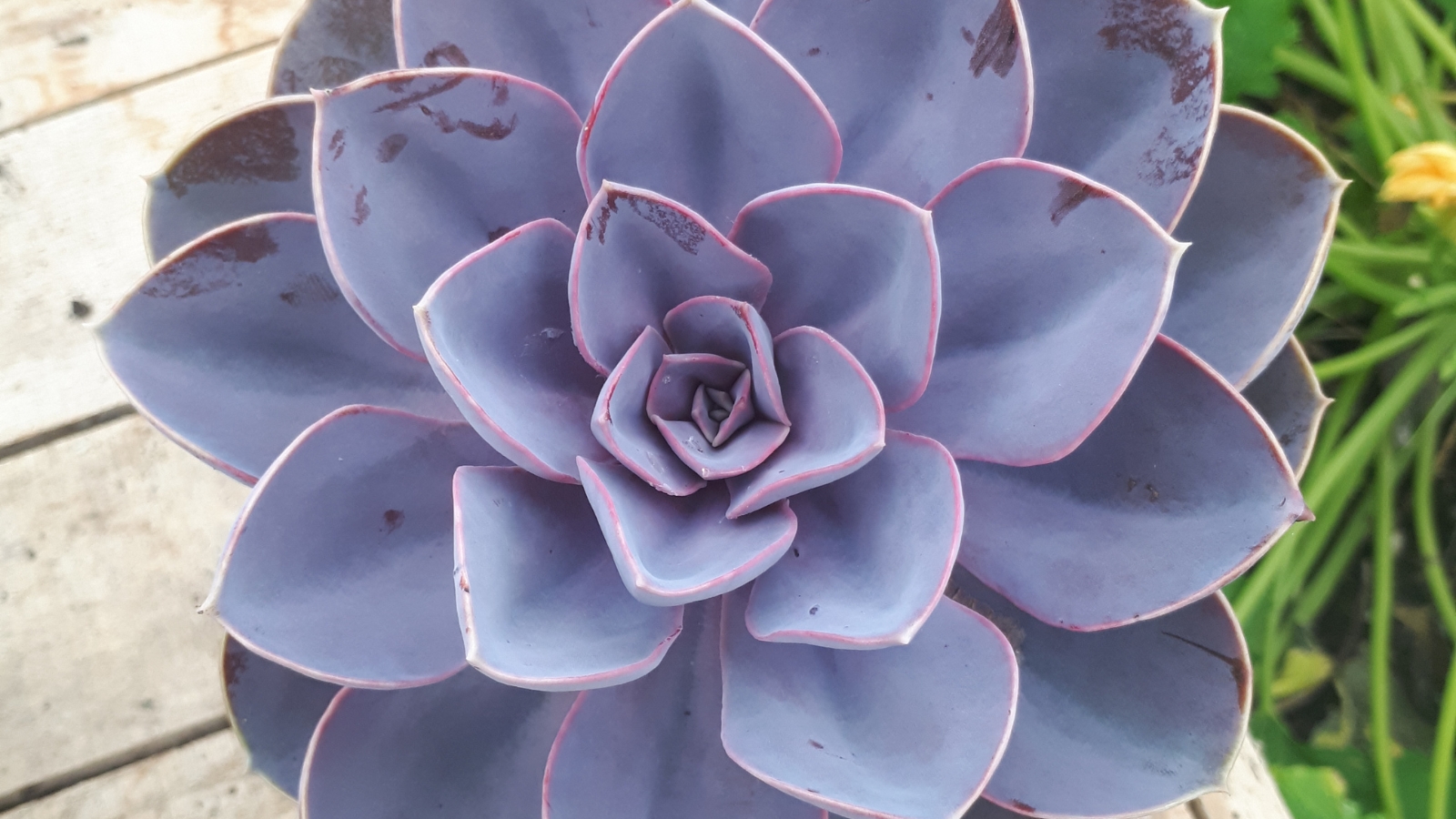

That is my private favourite and one which I’ve in my very private yard. ‘Purple Pearl’ is a big selection, with rosettes which can develop as quite a bit as 12 inches all by at maturity. The leaves are spoon-shaped and the loveliest shade of lavender. There is also pink alongside the trendy margins of the leaves. It has a glowing look in consequence.
‘Purple Pearl’ is frequent in floristry, on account of it seems to be attractive in a cut back flower affiliation. In summer season season season, this cultivar sends up one-foot-tall inflorescences tipped with coral-pink flowers. When careworn by chilly or gentle, ‘Purple Pearl’ takes on additional of a pink blush to its purple leaves.
German Champagne
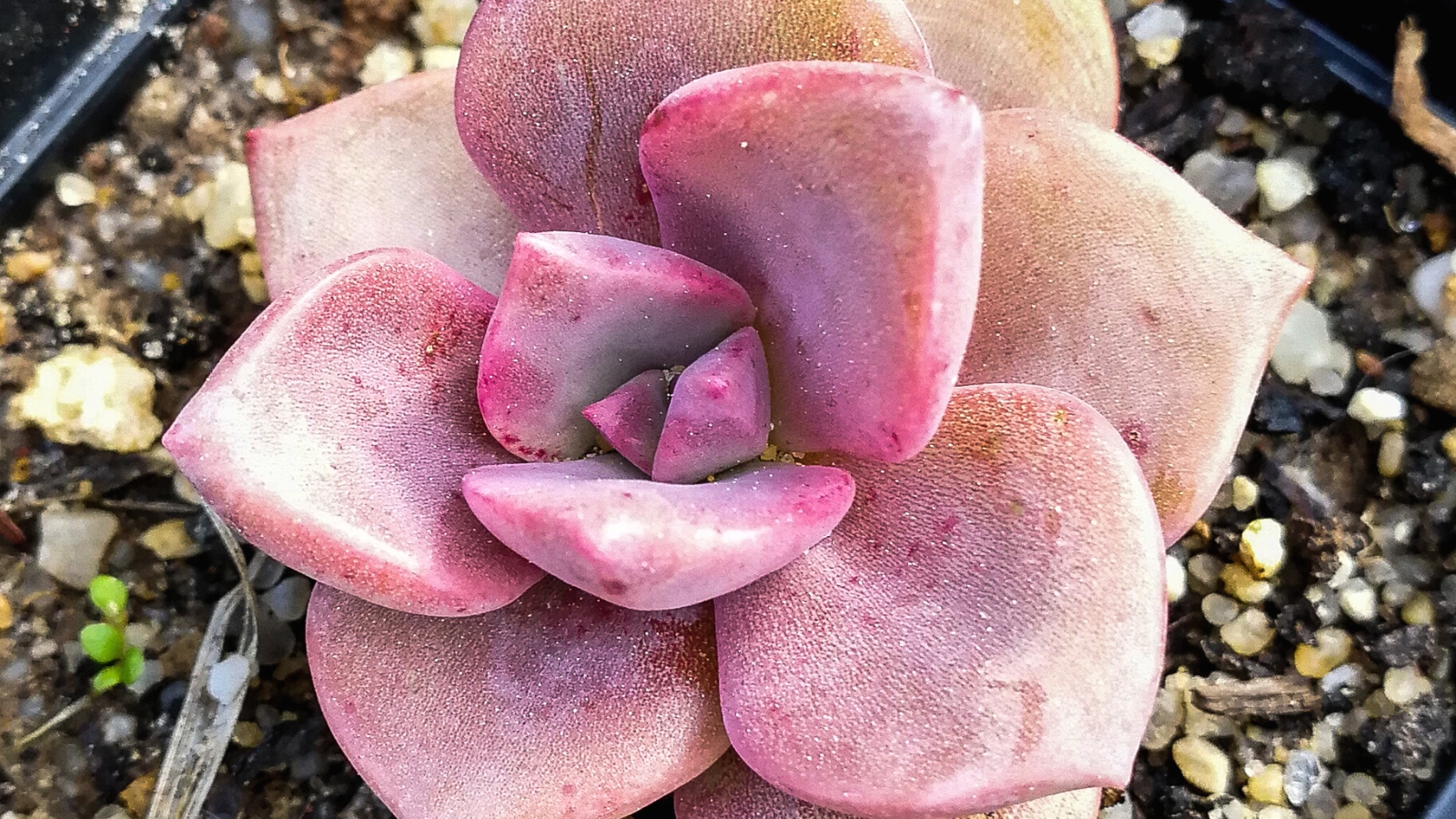

One amongst many additional vibrant varieties, ‘German Champagne’ is uncommon and nice. Thick, fleshy rosettes of rose gold have a deep pink middle. New leaves emerge just about crimson before fading to an extra golden hue. The leaves are sometimes evenly speckled and coated with a skinny, waxy coating.
‘German Champagne’ is extra sturdy to hunt out than many in trend cultivars. Its distinctive coloring makes it fascinating. So, when this alternative hits the cabinets of the native nursery, they go shortly. It readily areas out offsets, so why not propagate and share this cool echeveria?
Mexican Firecracker


Mexican firecracker plant, or Echeveria setosa, is the one fuzzy alternative on our report. Barely than the high-quality, waxy coating of many sorts, his one has seen hairs and an full fuzzy texture. The leaves are slender and apple-green within the route of the middle. As they age and are uncovered to photograph voltaic or chilly, the ends flip crimson.
It is a fairly cultivar that has a mounding habits. The general have an effect on is of a extraordinarily gentle and splendid plant. Mexican firecracker plant tolerates direct photograph voltaic and will carry out appropriately in a sunny window.
Flying Cloud
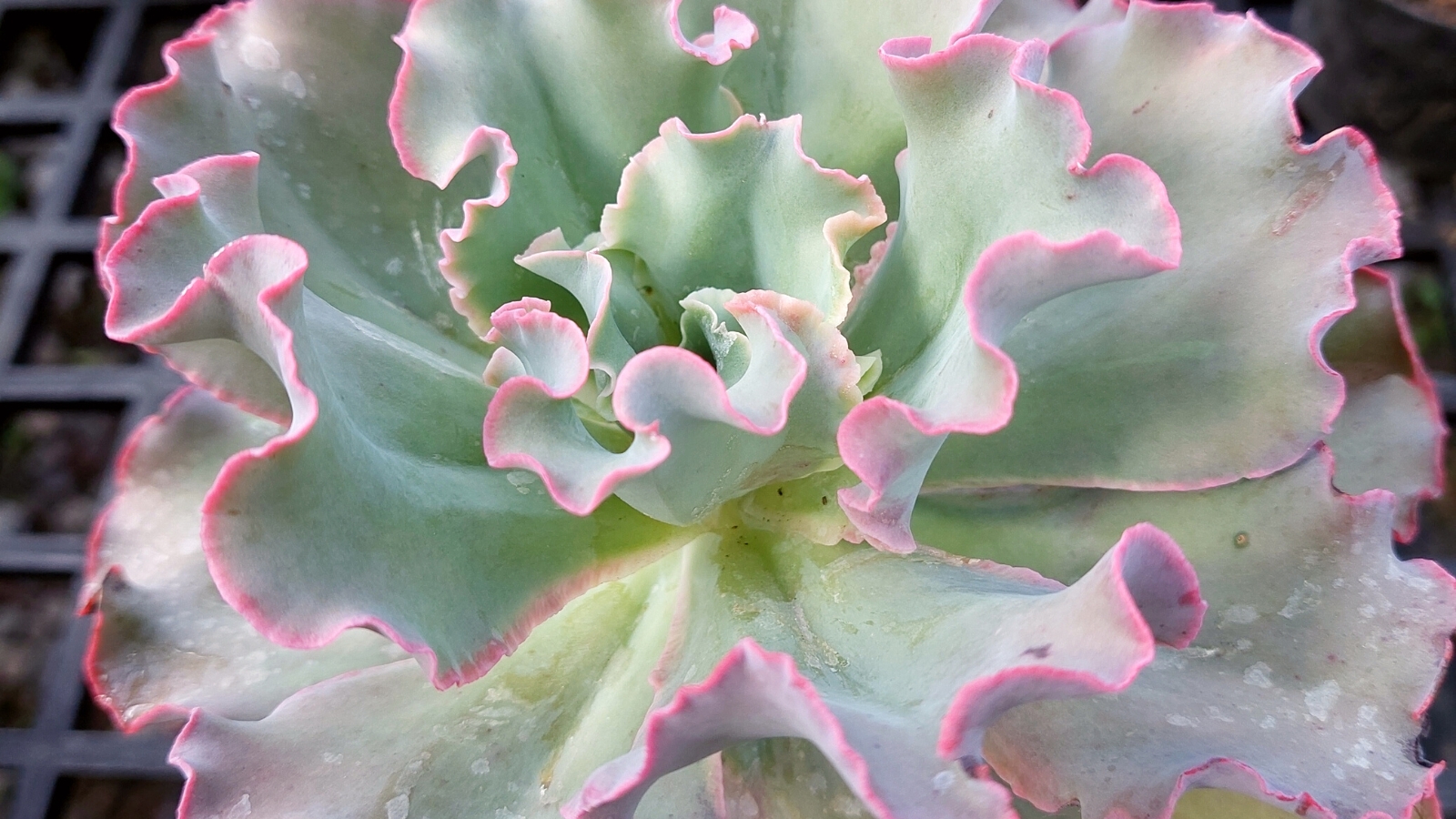

Rounding out our report is ‘Flying Cloud,’ which is an excellent, variegated echeveria. The unfastened and relatively massive rosettes have spoon-shaped leaves with scalloped edges. They’ve ivory and blue-green variegation with a pink tint to the sides.
‘Flying Cloud’ is usually a solitary rosette and has a fast stem. Sadly it’s not virtually just about nearly as good for floristry as some others. The variegation makes this noteworthy, and it’s optimistic to attract consideration. The flowers are coral-red and bloom throughout the summertime.
Closing Ideas
These good little crops nearly protect themselves. Their magnificence lies of their beautiful rosette type and beautiful floral reveals. For those who get began with echeverias, it is going to be most interesting to amass all of the differing types. I terribly counsel rising some and sharing your offsets with completely totally different plant-loving mates.
